#And write the transcript for my professor
Text




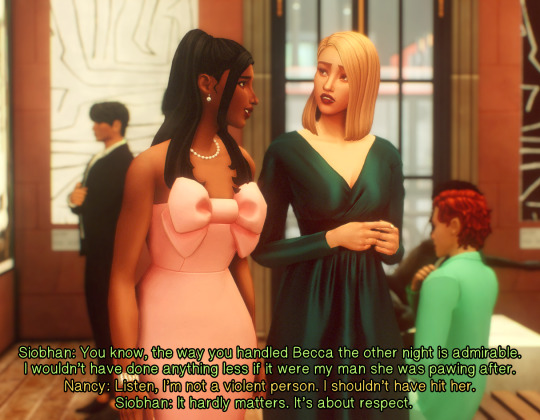
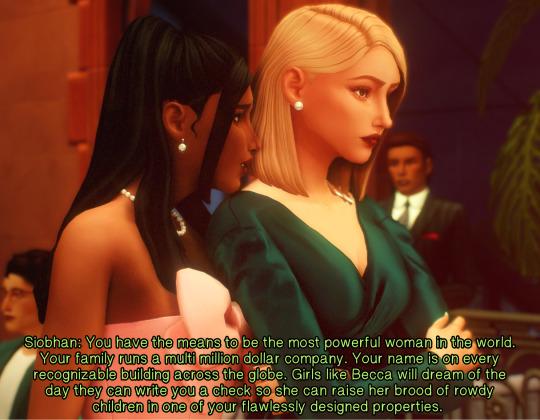

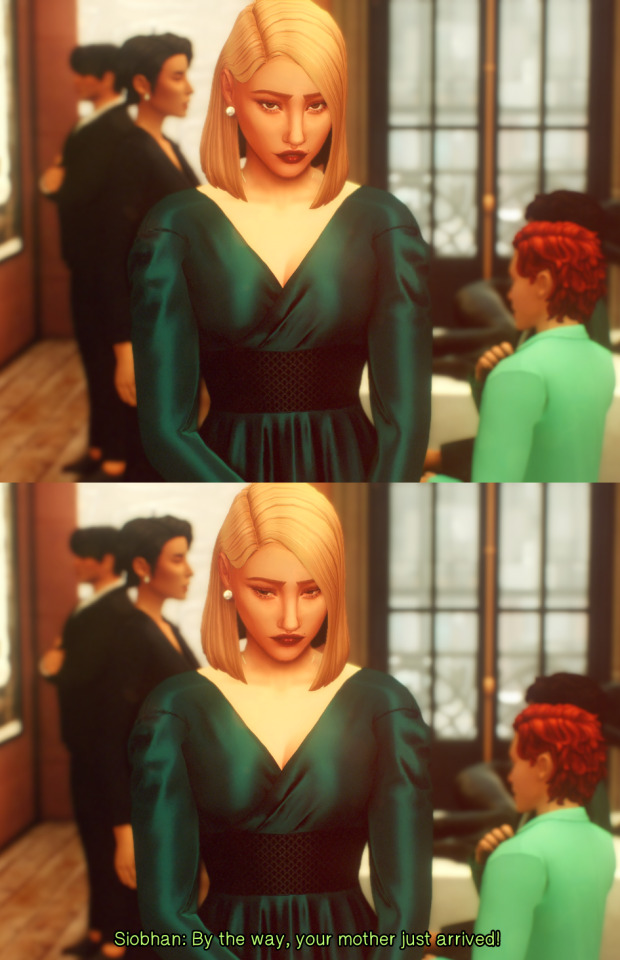




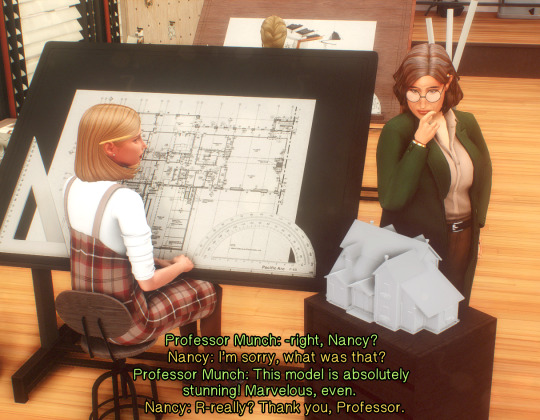






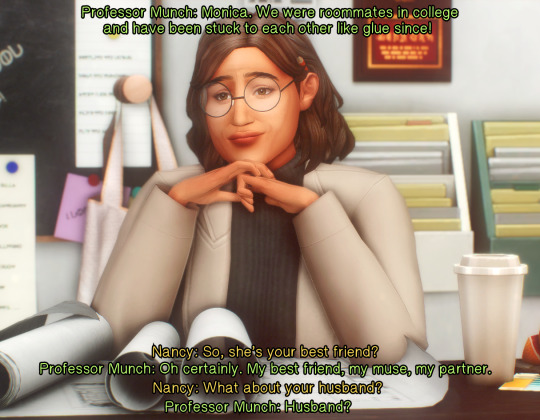





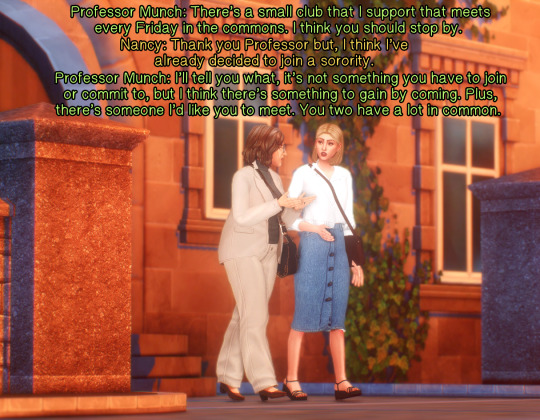


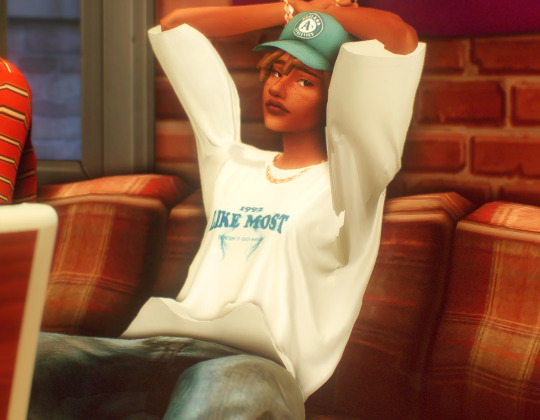
Prev / Next / Beginning / Pillowfort
AN: Next update will post Monday the 23rd , same time and same place! Going to start working on updating my game etc. <3
Transcript under the cut
Siobhan: There you are! Our guest of honor tucked away in the corner. You’re not hiding, are you?
Nancy: I never really liked crowds.
Siobhan: That won’t do, Nancy. Come. Lets chat.
Siobhan: You know, the way you handled Becca the other night is admirable. I wouldn’t have done anything less if it were my man she was pawing after.
Nancy: Listen, I’m not a violent person. I shouldn’t have hit her.
Siobhan: It hardly matters. It’s about respect.
Siobhan: You have the means to be the most powerful woman in the world. Your family runs a multi million dollar company. Your name is on every recognizable building across the globe. Girls like Becca will dream of the day they can write you a check so she can raise her brood of rowdy children in one of your flawlessly designed properties.
Siobhan: You’re a star, Nancy. It’s time you show everyone what it means to be a Landgraab. You can start by becoming a Theta.
Siobhan: By the way, your mother just arrived!
Nancy: Hello Mother.
Queenie: Nancy.
Nancy: Father couldn’t make it?
Queenie: No, I’m afraid he’s tied up in a prior engagement. Besides, I try not to bore him with my personal affairs. [murmurs] How provocative, these pieces.
Queenie: So you’ve made friends with the daughter of an adulterer. Is that what you thought would impress me? Well, at least she’s proactive. Your lack of involvement in any clubs or organizations shows just how lazy you are. It’s almost as if we’ve sent you to university to piss away our money yet again. When will you prove to me that you’re worth half the trouble you put your father and me through? And for the love of God, stop biting your nails! It’s disgusting.
Professor Munch: -right, Nancy?
Nancy: I’m sorry, what was that?
Professor Munch: This model is absolutely stunning! Marvelous, even.
Nancy: R-really? Thank you, Professor.
Professor Munch: Ah! No wonder! Your drawings are very compelling. The way you blend functionality with aesthetics is brillant! A true prodigy!
Professor Munch: I am very proud of you, Nancy. Keep it up.
Nancy: Hi Professor. I know I’m a little early for office hours, but I really wanted your thoughts on my blueprints.
Professor Munch: Nancy! Are you kidding! Anything for my star pupil. Take a seat.
Professor Munch: If I’m being honest, I don’t have much critique.
Nancy: Staying on top of my grades is really important to me. My GPA is 3.7 but I know I can do more to improve. I can do better-
Professor Munch: [huffs affectionately] Nancy! You are my brightest and best student! I’d say it’s in your blood. I haven’t seen such vision and passion in my student’s work since I taught your brother.
Nancy: Nathan was your student?
Professor Munch: Oh, Nathan was my star! In the short time I spent with him, he has shown me what true artistry looks like. That kid had an eye for detail. He always spoke so fondly of his little baby sister, Nan; he’d call you. [sighs] I miss him dearly.
Professor Munch: I thought of quitting and getting back into the field after he passed. I was devastated when I found out about the accident. My partner pushed me to continue teaching. She knew there was nothing I loved more than handing the tools to brillant kids like you and Nathan to shape our future.
Nancy: Partner? [frowns] Your...partner?
Professor Munch: Monica. We were roommates in college and have been stuck to each other like glue since!
Nancy: So, she’s your best friend?
Professor Munch: Oh certainly. My best friend, my muse, my partner.
Nancy: What about your husband?
Professor Munch: Husband?
Nancy: I- sorry. Nevermind.
Professor Munch: Talk to me, dear. What’s on your mind?
Nancy: I guess I don’t understand. You’re wearing a ring but you have no photos of your husband. You seem...close with her, in the photo.
Professor Munch: I was married once. We have three children together. Sweetest man alive. We’re still friends to this day. We both realized that we had our hearts in different places. In the end, I had my Monica. My soulmate.
Nancy: [sobs quietly]
Professor Munch: Oh, no. Nancy? Dear, are you alright?
Professor Munch: [softly] Oh, sweet darling. You’re hurting, aren’t you? Can I hold you? Is that ok?
Nancy: [nods once]
Professor Munch: You let it all out, you hear me? Just let it all out. I got you.
Nancy Narrates: [I wondered what kind of person I’d be had my mother held me like this]
Professor Munch: There’s a small club that I support that meets every Friday in the commons. I think you should stop by.
Nancy: Thank you Professor but, I think I’ve already decided to join a sorority.
Professor Munch: I’ll tell you what, it’s not something you have to join or commit to, but I think there’s something to gain by coming. Plus, there’s someone I’d like you to meet. You two have a lot in common.
Morgan: Holy shit, hey! It’s Nancy Landgraab! Get over here!
#the art of being seen#the landgraabs#nancy landgraab#siobhan fyres#dominic fyres#moira fyres#mia munch#morgan fyres#knox greenburg#darling walsh#sims 4 simblr#sims 4 stories#ts4 simblr#sims 4
125 notes
·
View notes
Text





Yet another result of me being silly in dms with @alto-tenure... We're really asking the important questions here (context under the cut, sort of)



#professor layton#azran legacy spoilers#aurora azran#desmond sycamore#hershel layton#luke triton#emmy altava#Whiskers draws#Art#Fanart#Comic#I don't know how to do comics I'm so sorry#I actually nearly wrote a fic about this instead but I still have a fic to write and a comic fit better#If you can't read my writing the transcript is in the alt text
39 notes
·
View notes
Text
How do I tell my professors I love learning I hate doing 40p of reading per class to only talk about the first paragraph quickest route no freeways
#the endless cycle of i hate school -> I just paid to be here#my professors are cool#the content is cool#i love having discussions about language#but do I have to write pit a transcription#THIS IS THE SECOND CLASS CMON MAN IDK WHAT IM DOING#and why do i have to read about a white man from the early 1900s telling me women cant throw a punch because of biology#anthropology#college
2 notes
·
View notes
Text
Coming up w/ 900 words for my writing assignment for research methods in criminal justice: 🥹😰🤧
Coming up w/ 10k words for a spicy/angsty Rooster x contract killer!reader imagine: 🥰😏🤪
#I’m dying over here y’all#it’s due tonight and my professor was of no help when I emailed him for some insight#I just wanna write fanfic 😭#It’s only the third week but I already have a D and I need a 86 to pass the class so I’l like: well looks l like I might have to drop#I’ll take a W over a D or F on the transcript anyday
5 notes
·
View notes
Text
after lecture punishment




pairing: professor!rafe x reader
warnings: sir kink, spanking, fingering, edging, praising, 18+ mdni
word count: 1.6k
request: Hiiii! Can you write something with Professor!Rafe? Like where reader can't focus in class because of how sexy he is/ starts failing so he keeps her after class or something like that lol <3333
main m.list ⟡ rafe cameron m.list ⟡ taglist

“Fuck” you muttered to yourself, staring at your test result, the bright red ink that marked the paper with a ‘D-’.
When you first started the second semester of your junior year, you never thought in a million years that you would score anything lower than a ‘B’. You passed your previous classes with flying colors, but it looks like this class alone would be the one to damage your track record. If you were being honest, it’s not that you didn’t study or try hard enough, it was your lack of attention span. Your attention was focused on something else during lectures, or should you say someone.
That someone is none other than the man teaching your class, Professor Cameron. You couldn’t help it, you’ve always had a thing for older men and it didn’t help that he was the sexiest man you’ve ever seen. You were so engrossed with him, that you even noticed he wasn’t married, there wasn’t a ring adorning his left ring finger.
You were disrupted from your thoughts when you heard rustling around you, looking to see your classmates packing their belongings into their bags. You shove your test into your binder, standing up as you gather your items. Your feet carried you towards the door, passing Professor Cameron’s desk before you felt a hand brush against your arm as he called out your name, following with “Could you walk with me to my office? I have a few things to discuss with you”. You watched as your classmates dispersed out of the room before turning your head, looking at him, and nodding.
You walked behind him, following him like a lost puppy as he led the way to his office. His name plaque mounted near his office door, glinting from the lighting, catches your eye. He twists the doorknob, opens the door, and steps aside to let you in, his eyes shamelessly glued to how your hips swayed as you walked in. He follows behind you, shutting the door, and gesturing for you to sit at the chair in front of his desk.
“I couldn’t help but look at your transcript and noticed you’re an honor student, is that right?”, Professor Cameron leans back against his desk, standing in front of you, crossing his arms over his chest, his biceps bulging against the sleeves of his white button-up. “Uh, yes, sir” you mutter, feeling yourself fidget with your skirt. His eyes fixate on your skirt before he clears his throat, “Your grades for the past few semesters are impressive but coming into this class, I have yet to see the honor student in you”.
“You do understand that your grade in this class is on the verge of failing, correct?” he questions, to which you sheepishly nod, “Is there something going on outside of class affecting your learning?”. You nervously bounce your leg up and down, “No, sir. I’ve just been distracted, that’s all”. Professor Cameron’s face turns into a look of amusement, “Distracted? What’s makin’ a smart girl like you distracted?”.
Your face flushes with embarrassment, “It’s nothing”, you mumble, watching as Professor Cameron rolls his sleeves up, his hands moving behind him, settling on his desk, “Nothin’? If it was nothin’, you wouldn’t be on the verge of failing my class. I’ve been watching you during my lectures, you’re a good girl. You wouldn’t lie, would you?”.
“N-no”, you lied, stuttering as he observed your face, taking in your reaction, as if he was trying to detect if you were lying. He lets out a ‘tsk’, standing up and pinching your elbow between his fingers, pulling you out of the chair and into his chest. “Thought a smart girl like you would know better about lying” he shakes his head, “I can’t help you with your grade unless you tell me what’s been distracting you. That, or I’ll have to get it out of you, it’s your choice, sweetheart”.
When you don’t give him an answer, he pushes you against his desk, forcing you to bend over. He grabs your hands, pinning them onto the top of his desk with one hand. His voice is gruff, “Alright, you made your choice, guess I’ll have to get it out of you”. His rough, large hand pushes your skirt up your hips, revealing your thong and your heart is pounding in your chest, anticipating his next move.
His hand runs along the curve of your ass, kneading at the flesh before he pulls his hand back and delivers a sharp smack. You yelp at the contact, squirming to get your wrists out of his hold, and it only makes him bring his hand down again, the sound echoing in his office. His signet ring catches against your skin with each smack he’s given. “Remember, you made your choice. You could be a good girl and tell me what’s been distracting that pretty little head of yours and I’ll stop…or, you don’t and I’ll have to keep punishing you” he warns, reminding you with another smack to your reddening ass.
He releases his grip on your wrists, “Keep them on the desk” his voice was stern, giving you no room for argument. Rafe’s hands cup the globe of your ass, spreading your cheeks apart, “Then again…I think you’re enjoying this” he chuckles to himself, his eyes locked on your arousal staining a wet patch onto your thong. He hooks his finger into your thong, tugging it to the side, your glistening cunt on display for him.
A gasp can be heard from you the second you feel his spit running along your folds before he spreads it across your lips, his signet ring-clad finger prodding at your hole. “As long as you tell me, I’m more than willing to help you with anything you need”, his words indicating he wasn’t talking about your grades.
His thick digit pushes into you, your warm, wet walls sucking him in and he can’t help but groan at how tight you feel around his finger. “So fuckin’ tight, gonna have to stretch you out” his words ringing in your ears as he adds another finger, slowly pumping them in and out. You scoot yourself back, trying to stand up but he’s quick to press his palm on your lower back, holding you there as his fingers move faster. You moan at the delicious sensation of the coolness his signet ring creates as it bumps at your clit with each thrust of his fingers.
Your slick coats his fingers, practically soaking them, filling his office with the wet, squelching sounds of his fingers brutally thrusting into you. “Can’t have you gettin’ too loud on me, sweetheart”, his hand reaches around, and clamps down on your mouth, muffling your moans of pleasure when he curls his fingers, hitting at your g-spot. He removes his hand from your mouth, snaking it between your legs to rub at your clit. He can sense you’re close, your inner walls contracting, and gripping his fingers.
You whine out in frustration when you feel his fingers slowing down. Rafe pushes himself forward until his chest is flush against your back, his weight pressing you further onto his desk, “Wanna know what I think?” his warm breath tickles your ear. “I think your pretty little head is distracted and full of filthy thoughts”, his thumb slowly circled at your clit, “Filthy thoughts of me”.
You shake your head, not trusting your voice, “No? So you don’t press your thighs together, trying to relieve the throbbing need for me when you see me? You don’t think about being bent over my desk like you are right now?”. He doesn’t miss the way you clench around his fingers at his words, “S’okay to admit it”, he coos, his fingers picking back their speed while his thumb circling on your clit faster.
“P-Please, sir”, you stutter, your hand moving to hold onto his arm between your legs as you’re on the brink of an orgasm, the same orgasm that he ripped away from you. “Please what?”, he taunts, “Please let me cum”, you plead, tears welling in your eyes. His fingers slowed their movement, edging you once again, “No can do. You’re a smart girl, you know what I want to hear”.
“C’mon, sweetheart, just tell me what’s been distracting you in my class and I’ll let you cum, yeah?” He mutters, already knowing the source of your distraction but wanting to hear you admit it. “Be a good girl and I’ll have you makin’ a mess on my fingers in seconds, I promise” He adds.
“You’ve been distracting me” You hiccup as you admit what he’s been wanting to know. “Yeah? How?” He taunts, his fingers relentlessly pumping in and out of your cunt with ease, curving his fingers, repeatedly thumping at your g-spot, “Been distracting you so much that little head of yours can’t think of anything except the thought of me bending you over, stuffing you full of my cock?”.
“Yes” you lazily nod, your head feeling dizzy and your response is good enough for him, “Go on, cream all over my fingers”. Your cunt flutters around his fingers, legs trembling, almost giving out as you come undone all over his fingers. “Good girl, see, that wasn’t so hard” He praises, slowly moving his fingers, helping you come down from your high. He withdraws his fingers from you, pulling them into his mouth, sucking them clean, “Fuck…been wanting to know what that sweet cunt tasted like”
You shakily stand up, smoothing out your skirt to fix your appearance when Rafe pinches your chin between his thumb and forefinger, tilting your head up to look at him, “From now on, I want you to be under my mentorship, alright?” he mumbles, his thumb brushing at your bottom lip, the corner of his lip twitching upwards at your response, “Yes sir”.

tagging: @oceandriveab @babygorewhore @xxbimbobunnyxx @rafesthroatbaby @annoyingassleo @drudyslut @sturnioloshacker @redhead1180 @shawtycoreee @starkeyisthelastname @hallecarey1 @heartsforvin @eddieslut69 @bimbotrashcan @bunnyrafe @kisses4angel @hyperfixationgirl @emilysuperswag @flvredcas @usergeta @rafeinterlude @rafecameroninterlude @starkeysheart @thatsthewaythechrissycrumbles @fae-of-prey @amandabbbbb @sabrina-carpenter-stan-account @spid6y @chimindity @spacexdrago @honeybunniesoobin @juniebugg @wearemadeofstardust0 @blckbrrybasket @sublimepenguinpeach-blog @chrislapdog @dark1paradise @nemesyaaa @rafescurtainbangz @zyafics @ijustwanttoreadlols
#𝓌𝑜𝓇𝓀𝓈 ༉‧₊˚.#professor!rafe#professor!rafe cameron#professor!rafe smut#rafe cameron smut#rafe cameron fic#rafe smut#rafe x reader#rafe obx#rafe cameron#rafe cameron x reader#rafe cameron outer banks#rafe outer banks#rafe cameron x you#obx smut#rafe cameron imagine#rafe cameron prompt#rafe x you#rafe fanfiction#outerbanks rafe#rafe cameron fanfiction#rafe cameron obx#obx x reader#outer banks#rafe outerbanks#rafe cameron outerbanks#drew starkey#drew starkey x reader
1K notes
·
View notes
Text
Have you witnessed discoursing about Orym in the past several months? Would you like to be more well-informed about the subject matter? Well, then, do I have a post for you! As a reference for myself and potentially for others:
A Comprehensive Write-Up Of Relevant Times And Contexts Where Orym Has Brought Up His Dead Family While The Group Discusses The Vanguard/Predathos--With Receipts
Disclaimer: these are all of the instances in which I was able to find independently through the Critical Role transcript search, not from rewatching everything. It is therefore possible there are some instances unaccounted for.
Episode 34. Post-resurrection after being killed by Otohan Thull, he brings up the fact that Otohan had a hand in killing his family to emphasize to Imogen how dangerous Otohan is and that she may potentially continue to be an issue for her specifically due to her apparent interest in Imogen (exalting her during the battle in the previous episode)

2. Episode 46. An early God Talk™️, prompted by Ludinus using (presumably) Feeblemind on Professor Kadija Sumal. He holds his opinion until the very end of the conversation, after entertaining Imogen's idea that "they make some good points" and listening to the group discuss if the gods are good or bad for several minutes.
"I don't need to debate it. I lost my husband and father to these people, I'm not on board. Some of the gods are terrifying, and some of them have put their thumbs on the scales for people for centuries, even in the last few decades. Who are they, who are we to decide who lives or dies, god or mortal or otherwise? I don't think they have any good points."
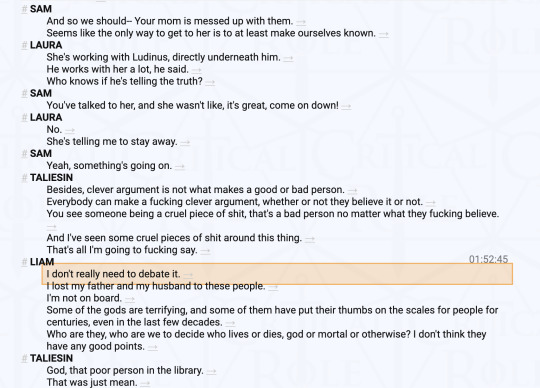
3. Episode 49. He brings them up combatively ("Well, Imogen, I wish. my family didn't have to die for their brighter tomorrow"), against Imogen's statement of, "What if it's not that bad? [...] What if what we're doing is just fighting change?" after she solely received a vision of a Utopia-like future from her mother. Imogen backs down quickly after his reproach and acknowledges that the vision was likely a part of cult brainwashing.
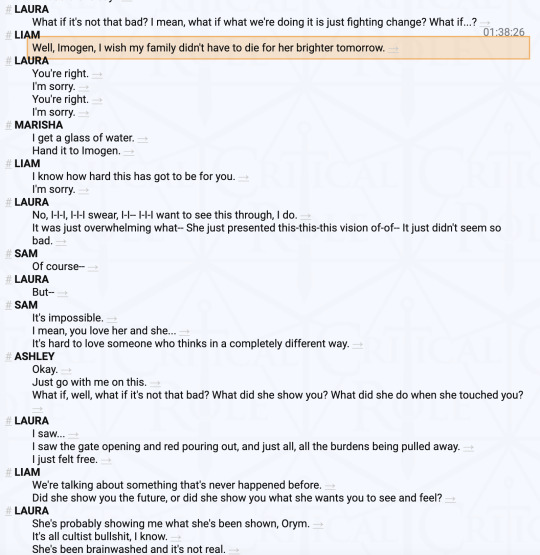
4. Episode 61. Orym pulls Prism aside, after she asks the party and Elder Abbadina if Predathos would cause a world-ending event, or if it would only be bad for some (the Elder did not know anything about Predathos at all), to say, "I don't think we know anything [...] The only thing I have to go on is the track record of the guys trying to bring Predathos out. And that track record is not very good." At further prompting from Prism about if he ever thought the Vanguard's ideas were right, he says, "Prism, I don't understand the gods. I don't know anything about the titans. I don't know an eidolon from eyeliner. [...] But I'm a widower, because of the people who want to bring this about. So it's hard for me to wrangle with the other side."
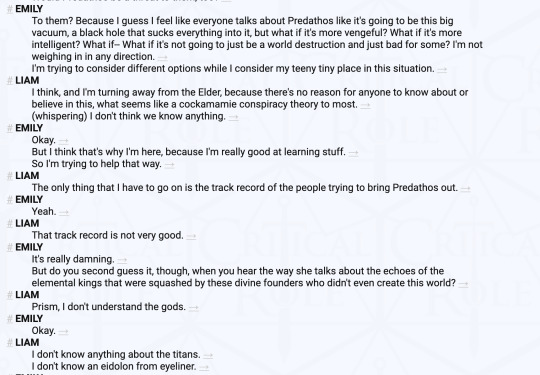

5. Episode 61, pt. 2. Orym listens to the party converse with Elder Abbadina for a little while longer before silently sneaking out "to go think about his dead father and his dead husband."

6. Episode 77. Another God Talk™️ with the whole party, prompted by FCG asking what everyone's motive was in going to the moon. For his reasoning, he says, "We don't know what's going to happen to any inch of this world if Predathos is unleashed. Yeah, this started with my husband and my father. It's so much bigger than that. If my life can secure the lives of everyone who comes after us, well spent."
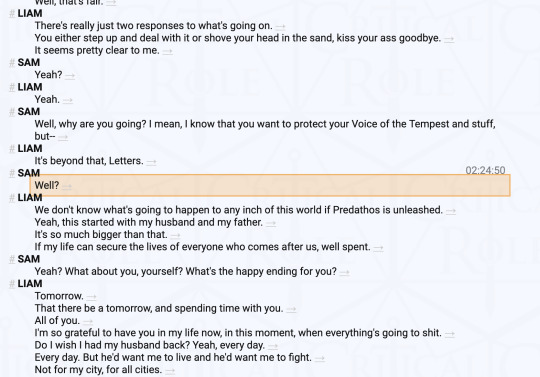
7. Episode 92. After the death of another loved one to Otohan Thull, in response to Liliana's statement that temples might hunt down Ruidusborn in the theoretical event that Ludinus' plot is foiled, "Cold comfort for my family in the ground."
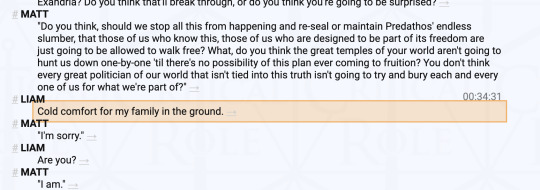
8. Episode 92, pt. 2. In response to a throwaway, thoughtless comment Ashton made that, "I hope [Liliana] is right. I really do. I hope her ends are fucking great because these means are just not forgivable." Orym has Chetney bring out Otohan's sword, jams one into the sand and declares, "This is the sword that killed my father and my husband. She is not right."
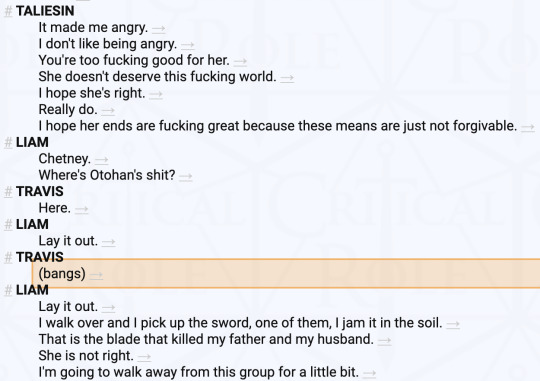
UPDATE: 8/14/24
9. Episode 102, during the confrontation with Ludinus. Interjected during the ongoing conversation, specifically during some bantering between Chetney and Ludinus as to the last time they met (when Chetney attacked him as a werewolf). He says, "You put a hit on my family, a successful one, fuck you. Fuck you." Ludinus later apologizes for the deaths of his family, claiming Otohan was "overzealous in her methods." Both Imogen and Laudna respond immediately that he was responsible for Otohan's actions.


10. Episode 103, during yet another God Conversation. Orym tries to redirect conversation about Ludinus and the gods, stating that they are different topics. Ashton concurs, and Imogen states that she agrees with Orym that Ludinus doesn't get to decide for everyone. Dorian then interjects, "But the gods do?" Which prompts Orym's blunt response to him specifically that, "If Ludinus had sent people to your home, and taken brother and your father and countless others, how philosophical would you be about it, Dorian?"
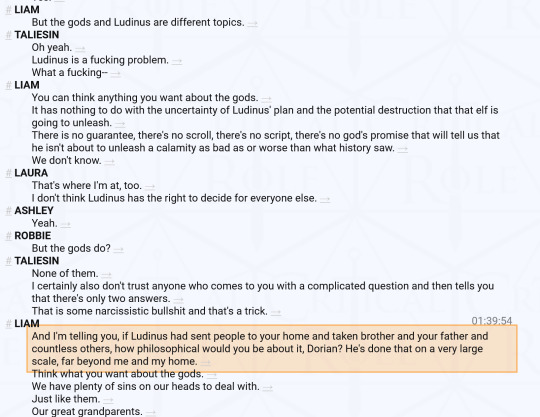
-
So, with all of the information in front of us, what conclusions can we draw from them? When asked by others to assess if the Vanguard has valid points, Orym repeatedly abstains from having an opinion. Whether or not the Vanguard has a reason to be upset is irrelevant to him--what is relevant is the loss of life they have incurred along the way. Orym takes no stance on the gods, he repeatedly states he doesn't understand them or know anything about them or harbor much of a connection to them. As far as he is concerned, his role in this is to oppose the violence being done to the people of Exandria. Why waste your time debating the merits of a cult's ideology when you know, in the end, you will have to fight against them to end the slaughter? To protect people?
And for what it's worth, in almost every instance, Ashton has effectively taken the same side as Orym. I have not included all of these moments, but they are easily located if you wanted to search up these moments on your own. The continual focus on de-legitimizing Orym's opinion seems strongly tied to the fact that he has a personal reason to hate the Vanguard. But facts being facts, Ashton hates them just the same--and he has no love of the gods, either. He hates the Vanguard based on their actions, same as Orym. In fact, Ashton and Laudna have both expressed outright dislike for the gods, and all other Bells Hells except for FCG expressed ambivalence. This is not about the gods. Not for Orym, not for the others who remain. This is about no more bodies on the pyre of Ludinus' machinations.
P.S. if you know of any other instances this topic has come up that I have not included, please feel free to let me know! I want this post to be as comprehensive as it can be, but I am fallible and may have missed something. Don't be afraid to tell me about a scene I missed!
#is this a little bit petty? yes#but also i genuinely did want all the info in one post for reference's sake#so hopefully this reference has helped others as well as decent compilation of information!#cr tag#I contemplated maintagging this. but. maybe that's a little too petty even for me#anyway the people who want to find this will probably find this. so.
207 notes
·
View notes
Text
This is a pretty tangential connection, but hear me out.
This painting, 'The Ballad of Lenore,' is based on the poem of the same name by Gottfried August Bürger:

and in that poem is where the line "the dead travel fast" comes from that Jonathan references. But that's plenty well-known.
Less well-known is the fact this was painted by the French artist Émile Jean-Horace Vernet, or just Horace Vernet.
And that's interesting because Sherlock Holmes revealed in the story The Greek Interpreter that he himself is related to a French artist named Vernet:
"To some extent," he answered, thoughtfully. "My ancestors were country squires, who appear to have led much the same life as is natural to their class. But, none the less, my turn that way is in my veins, and may have come with my grandmother, who was the sister of Vernet, the French artist. Art in the blood is liable to take the strangest forms."
And it has been speculated that the Vernet in question here is in fact Horace Vernet, if not his father Carle Vernet, or grandfather Claude-Joseph Vernet, both of whom were also French artists and painters.
Regardless of which Vernet he's talking about, he's still related to all of them. So I just think it's a pretty neat (albeit very tangential) in-universe connection between Jonathan Harker and Sherlock Holmes, two characters from very famous stories in the same era.
What's less tangential though is that Bram Stoker and Arthur Conan Doyle knew each other in real life, and were well acquainted. Here is a letter Doyle sent Stoker about how much he enjoyed Dracula:
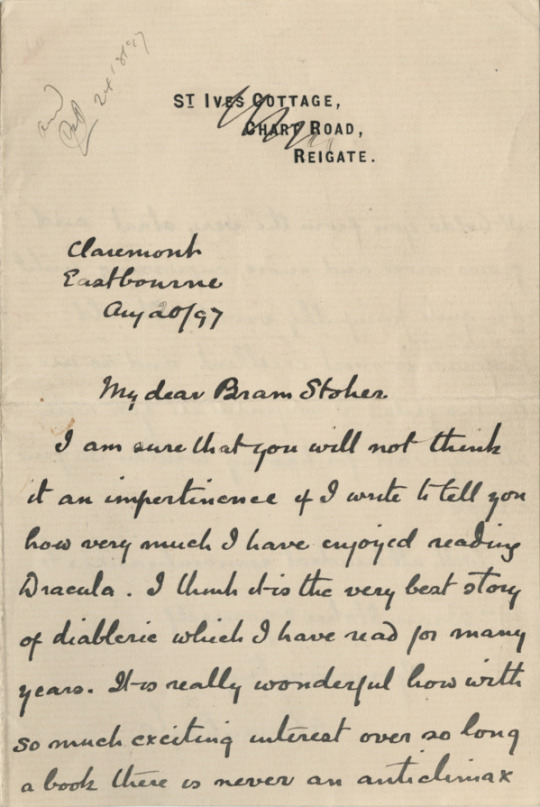
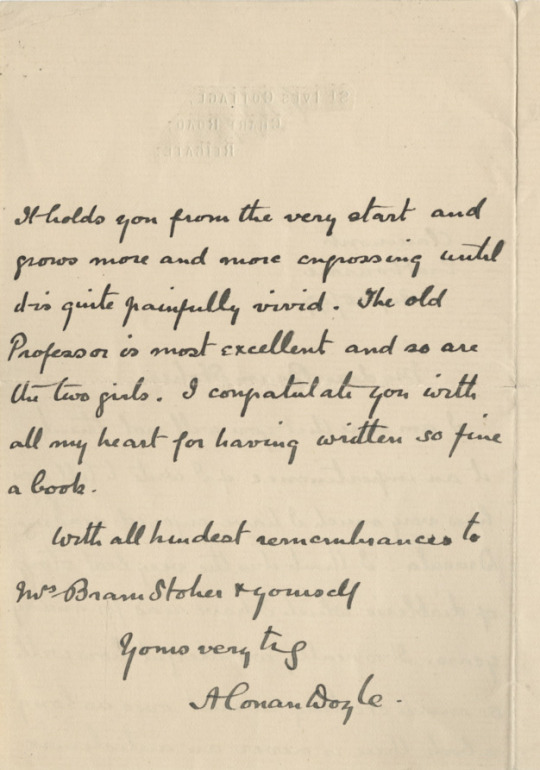
Transcription:
Claremont
Eastbourne
Aug 20/97
My dear Bram Stoker
I am sure that you will not think it an impertinence if I write to tell you how very much I have enjoyed reading Dracula. I think it is the very best story of diablerie which I have read for many years. It is really wonderful how with so much exciting interest over so long a book there is never an anticlimax. It holds you from the very start and grows more and more engrossing until it is quite painfully vivid. The old Professor is most excellent and so are the two girls. I congratulate you with all my heart for having written so fine a book.
With all kindest remembrances to Mrs Bram Stoker and yourself
Yours very truly
A Conan Doyle.
And here is a link to an interview (that's too long for me to put here) that Stoker did with Doyle about his life and upcoming marriage, which he attended. The website itself has a lot of interesting information, if anyone wants to poke around.
So yeah, a cool connection between two interesting people, both in the real world and the world of fiction.
#for all my fellows doing both Dracula Daily and Letters From Watson#letters from watson#dracula daily#bram stoker#arthur conan doyle#dracula#sherlock holmes#jonathan harker#gottfried august bürger#horace vernet#history
727 notes
·
View notes
Text
Q: I must ask you, Ms Harker, how did Bram Stoker’s story of Dracula get published? Is it true you and your friends were the inspiration?
[MINA LAUGHS] Oh, my dear Bram! I remember when we first met in Cruden Bay in Scotland for a trip and we got on so well. I then invited him to visit me in Whitby, which is where I moved to support Arthur’s new venture after the Carpathians. Bram was very curious about our story, and we…well, I suppose one thing led to another, and he was anxious to tell a version of it, mostly fabricated you understand, of his very own. To incorporate it into a tale of horror he was already writing.
I must admit I was sceptical at first, but the idea intrigued me. Of course, in our real-world story, there was no monstrous being known as Count Dracula, no vampires, and no magic. Just a group of unlikely individuals and a rather terrible set of circumstances. But Arthur convinced me it would aid us in establishing the Foundation, and nothing in the world meant more to us than that. So we gave Bram permission to use our likenesses, and he even studied our writings and manners to ensure he could capture us on the page.
I remember discussing with Arthur if we should have changed our names, changed who we were, but the release of the story, outrageous and horrifying as some of the details were, did introduce more people to the importance of blood and blood work. We were able to find many patrons to support us due to the release of Dracula, and while it has certainly made my life much stranger than it could have been, I was never truly upset by the book's legacy. I know Abraham - Professor Van Helsing's – nieces and nephews love to see how their uncle is presented as this dramatic vampire hunter!
Sometimes, I wish Bram hadn’t changed so many details, particularly the ending, but I am not myself a writer, so I had faith in his words. Given the loss of my dear husband, Jonathan, at just 24 years old, I sometimes feel that a part of him lives on, caught like a pressed flower between the pages of that book.
All I know for sure is that I have faith in what Arthur, Abraham, Jack, and I have created. We are honoured to work with the public to save lives, as we have done for the last 40 years.
-Transcript from BBC National Programme Radio Interview with Dame Mina Harker, Pub 1930
#the holmwood foundation#mina harker#dracula#audio drama#jonathan harker#the holmwood foundation podcast#fiction podcast#extracts#extract asks#as requested by you lovely people on tumblr!#in which mina does damage control#I wonder how well rehearsed this story is...
76 notes
·
View notes
Text
The Boring CBT Final for the Fun CBT King - By Lexi Moon aka CashAndPrizes
Okay! People asked and I fought tumblr to deliver!
Hi, I'm CashAndPrizes also known as Lexi Moon, and I am a doctoral student studying clinical psychology. I wrote about Redacted (specifically Lasko) for my final for Cognitive Behavioral Therapies. Here's the paper.
Shout out to my beloved friends in the WhoreHome and W.A.R. for keeping me going through this paper. I love you dearly.
Words of warning:
I am a clinician in training. I am still being supervised. I have not been graded on this final yet. (I'll update when I get it!) And I am definitely not an expert. Take everything here with a grain of salt.
I am not a licensed therapist but even if I was I am not your therapist. I'm play acting as Lasko's therapist for a class. Take everything here with a grain of salt. If you read any of this and think "It's a bit loud in here" do not assume this is absolutely you. If you have the means, please try finding your own mental health professionals and if you don't, please do a lot of research on these subjects. Don't use this as a diagnosis please, I'm just a guy.
I filled in a lot of Lasko's backstory based on my experiences with patients and my beloved Lasko kinnies who were instrumental to the writing of this paper. (I won't tag you and call you out, but you know who you are an I love you.) Your headcanons might be different - that's cool. I'm not claiming canon over most of this - but I did use the transcripts and timeline very heavily.
If you don't like the idea of pansexual, transgender, Indo-Caribbean/Trinidadian child of immigrants Lasko - pookie this might not be for you. If that sounds like your jam though - come on in, the water's fine.
Without further ado. Ladies and Gentlemen, this is Mambo Number Five. Here's Lasky. I can, in fact, fix him.
Case Summary
This case conceptualization addresses the hypothetical course of treatment for Lasko Moore, a character in a modern-fantasy audio narrative. Lasko Moore presented to treatment as a 30-year-old pansexual and transgender Indo-Caribbean man working as an administrator and adjunct professor at Dahlia Academy for Magical Novices for persistent anxiety symptoms. Upon intake, Lasko reported experiencing near constant racing thoughts that he was unable to “turn off”, panic attacks, and increased anxiety about social interactions at his work. He described spending a significant amount of mental energy preparing for and reviewing social interactions with colleagues such that he often avoids his colleagues in an effort to minimize his anxiety. Lasko reported that the anticipation around coworker interactions (meetings, socials, etc.) becomes quickly overwhelming as he becomes preoccupied with what he will say and do in an effort to try and minimize his tendency to become hyperverbal and overshare information as well as stuttering. He described this process as starting with embarrassment over previous interactions which leads to critical thoughts like “I shouldn’t be so anxious” which leads to rehearsal of potential outcomes of interactions. However, in the moment of social interactions he becomes so anxious as there “aren’t any objectives [or] any specific roles” to the conversations that he “word vomits” and becomes tangential and overshares until he runs out of breath and stops himself from talking due to his own critical thoughts and begins to isolate himself.
Lasko was initially diagnosed with Panic Disorder (F41.0) and Generalized Anxiety Disorder (F41.1) to capture his persistent anxious state with occasional intense bouts of extreme anxiety and panic. An initial long-term goal was collaboratively set as improving his coping strategies and tolerance of anxious affect to better network and create relationships. As this was Lasko’s first time utilizing mental health services, treatment began with inhibitory learning in combination with Acceptance and Commitment Therapy in order to facilitate willingness to experience interoceptive cues and extinguish avoidance due to fear of negative consequences. This was able to reduce his panic attacks as he felt more able to tolerate overwhelming anxious affect. Despite his clear engagement with treatment through attendance, homework, and skills practice, Lasko continued to struggle with critical thoughts and avoidance of coworkers which he identified as a major barrier to his continued professional development and potential non-academic relationships. Through collaborative exploration, a persistent early maladaptive schema relating to his critical thoughts emerged and treatment shifted to a goal of starting dialogue between schema modes to facilitate the use of coping strategies to build interpersonal effectiveness. Lasko was born as the human-born child of Trinidadian immigrants who moved the southern California in the early 1990s due to political unrest. From an early age Lasko faced high academic expectations from his parents who desired upward mobility for their child and a “piece of the American Dream.” His mother was emotionally labile to the point of explosive outbursts where his father was more passive and spent significant energy working and caring for his wife. This experience started Lasko’s early maladaptive schema regarding rigid standards with no support, which only became worse when Lasko’s elemental powers began developing at thirteen and his parents expected perfect control (and perfect suppression) of his powers with no training and a highly critical environment. This led to Lasko isolating himself at home as much as possible to hide his lack of control but left him with an environment that created a positive feedback loop where his lack of control led to increased yelling and criticism which led to worsening outbursts of his powers. This culminated in a final traumatic event when Lasko was seventeen and lost control of his powers, leading to his mother “calling [him] everything she could think of […] she was so loud and I just wanted her to stop” to the point that Lasko accidentally sucked all of the air out of the room and almost suffocated his mother. Though Lasko was able to find support with the Department of Uniform Magical Practices and become emancipated from his parents, these experiences developed a maladaptive pattern of hypercritical thinking about himself, especially in the context of social relationships.
Research
Avelino Cardoso et al. (2023) pose potential ways to modify and apply Schema Therapy to sexual and gender minorities. This work focuses on understanding how of harmful implicit and explicit messages about gender and sexuality contribute to early maladaptive schemas based on consideration of the minority stress model, and how Schema Therapy interventions can be applied to sexual and gender minorities. One area of particular relevance from this article is the conceptualization of an inner critic mode that specifically represents stereotypes and prejudice that are naturalized by society. When applying these principles to the case of Lasko, the environment of his childhood can be understood as an essential aspect of the treatment. Though Lasko did not present to treatment looking to discuss the impact of his pansexuality and transgender identity, potentially because of the clinician’s own advertised identities, the impacts of systemic oppression against sexual and gender minorities can be woven into treatment for his hypercritical early maladaptive schema. Based on the suggestions of Avelino Cardoso et al. (2023), it may be worth examining his secondary schemas around shame and social isolation as also being shaped by his experience as a gender and sexual minority and how that may contribute to his predominant hypercritical schema.
A major concern for this section of the paper is the lack of research modifying second and third wave cognitive behavioral therapies for sexual and gender minorities. Results for Acceptance and Commitment Therapy with LGBTQ+ individuals only revealed one article about group therapy and a study proposal; results for Schema Therapy with LGBTQ+ individuals only provided Avelino Cardoso et al.’s (2023) theoretical essay. There does not appear to be much research and what research exists is extremely limited with no randomized control trials. This makes it clear that evaluating the efficacy of treatment for sexual and gender minorities is not a priority, which leads to a major critique of Avelino Cardoso et al.’s work. Though the article is useful for considering how to address systemic change in the room, it seems to attribute lived experiences of sexual and gender minorities to a schema rather than ongoing threats in a world where hate crimes and discrimination against LGBTQ+ individuals is on the rise. The abandonment and violence that these individuals may face is not imagined and it can be seen in the lack of interest in research.
ADDRESSING Model
When considering the case of Lasko, it is important to remember that psychology does not develop in the vacuum of individual experiences – psychology develops based on the global environment, which includes the social, political, economic, and cultural contexts as well as individual context. Utilizing Hays (2022) ADDRESSING Model, the impact of Lasko’s intersecting identities can be understood to have a major impact on his current symptom presentation and the development of early maladaptive schemas and schema modes. Lasko was born to first generation immigrants from Trinidad with strong Indo-Caribbean and Catholic roots – and he was assigned female sex at birth. Using a systems-focused lens, Lasko’s current symptoms can also be understood within the larger context of living in a world where several aspects of his identity are under intense scrutiny and political debate. As a child of immigrants and as someone Indo-Caribbean, Lasko likely faced explicit and implicit messages about his intellectual capabilities, his body, and his work ethic. While Lasko directly experienced his mother as extremely critical and never satisfied with his performance, it is just as likely that he received messages as a child about needing to work harder than many of his same aged peers for equal amounts of recognition based on his racial, ethnic, and sex assigned at birth. There is also the element of the disconnect between his sex assigned at birth and his gender presentation, and the messages he received about being transgender from his Catholic, Trinidadian immigrant parents as well as the American culture – which were likely discouraging at best and hostile at worst.
Keeping all of this in mind, Lasko’s hypercritical, social isolated, and emotional deprived schemas can be understood as also being a direct result of the intersection of his identities – and this does not even cover the added layer of being an empowered human-born. In a variety of ways, Lasko has had very different experiences than his peers by virtue of being a transgender, pansexual, child of unempowered human immigrants. When Lasko describes feeling different from the people around him growing up and when he entered the empowered world, this is a real experience based on the multiple identity intersections – it is not hard to believe that he did not have many friends or family members between the late 1990s and late 2000s that had similar experiences to him. This left him with the acute sense that he was fundamentally different and needed to work much harder than those around him, and also that to get validation he needed to sacrifice his needs (or identities) for those of others.
Methodology
The initial treatment approach for Lasko was a combination of Acceptance and Commitment Therapy and inhibitory learning with interoceptive and in vivo exposure, which was successful in decreasing his panic symptoms but not generalized anxiety symptoms. Lasko reported that he experienced sudden panic attacks that seemed random and included symptoms such as accelerated heart rate, tightness in his chest, hyperventilation, feeling that he would lose control, sweaty palms, and loss of control over his magic. At the time of treatment, he reported that he had been having at least one panic attack every other month since he was a teenager and that they would occur more frequently when he was in periods of intense stress. After exploration, Lasko was able to determine that he often had panic attacks related when he spends time ruminating in anticipation of social interactions. Lasko explained that during panic attacks he tends to seek quiet, dark places to hide and “ride out” the panic attack and that he has thoughts like “I’m going to mess this up” or “I can’t do this.”
Treatment started with Acceptance and Commitment Therapy and inhibitory learning as an evidence-based approach for treating panic attacks and generalized anxiety to address his symptoms and reduce further panic attacks as well as his anxious thought patterns (Barlow, 2021; Ruiz et al, 2020). Acceptance and Commitment Therapy (ACT) is a therapeutic practice that focuses on improving psychological flexibility and understanding the function of behavioral patterns (Gordon & Borushok, 2017). Much of early treatment with Lasko consisted of psychoeducation around the therapeutic process, behavioral therapy, and mindfulness. He took easily to ACT and benefited from understanding how avoiding social interactions was negatively reinforced by decreasing his anxiety while keeping him from creating connection. Inhibitory learning through multiple types of exposure (in-vivo and interoceptive) was able to make him more comfortable with feeling panicked, effectively reducing his panic attacks (Ramnero & Törneke, 2008). However, his baseline anxious affect and negative thoughts did not ease despite the use of ACT, so treatment shifted towards understanding the function of his persistent negative thoughts through Schema Therapy.
Lasko’s symptom presentation after several sessions of ACT and inhibitory learning was a persistent anxious affect and worry (especially around social situations) that felt uncontrollable and critical ruminative thoughts. As it seemed treatment had plateaued, the content of sessions moved towards a deeper understanding of his critical thoughts based on an indication of deeply held early maladaptive schemas. Barlow defines early maladaptive schemas as persistent behavioral, cognitive, and relational themes developed in early childhood that are reinforced throughout lifetime and that cause significant disruption and dysfunction (2021). Schemas are often viewed as truths about the self and others and are difficult to challenge because of the deep affective component and lifetime of reinforcement (Barlow, 2021). Movement towards schema work started with psychoeducation which involved discussing how schemas are reinforced through modeling (in this case by his mother’s critical comments about his performance) and how people can often act in ways that reconfirm schemas into adulthood. Lasko then completed the Young Schema Questionnaire - Revised and received high scores on schemas related to emotional deprivation, social isolation, and unrelenting standards (Rijkeboer, 2015). During the debriefing and explanation of the results, Lasko reported that when he was completing the questionnaire he felt “really seen” in a way that was uncomfortable but also validating to his experiences in childhood and as a queer person of color living in America.
The topic of sessions then moved towards further psychoeducation about the process of schema work, including delving into his schemas and determining schema modes with the goal of improving his understanding of schemas and working towards healthier integration of modes and coping strategies (Barlow, 2021). Lasko was committed to treatment but apprehensive about “what would come up,” speaking to his concerns about dredging up uncomfortable memories and feelings. In response, he was encouraged to revisit his understanding of ACT and his core values as a reminder of why he wanted to continue treatment and work through feelings of discomfort and grief. The next session started proper schema work, starting with Lasko explaining his understanding of schemas and how they were currently impacting him. He aptly summarized that his childhood experience of feeling intense pressure to do well academically and conform to socially and religiously defined gender roles left him feeling isolated from his peers and that he always needed to work harder and do more, while also feeling as though he had no support or anyone who truly understood him – this led to the development of schemas related to emotional unrelenting standards, social isolation, and emotional deprivation.
The first step of schema work was to identify schema modes as recommended by Barlow (2021). Lasko completed the Young Schema Mode Inventory (YSMI) as homework (along with his regular thought and feeling records) and scored highly in the following modes: vulnerable child, compliant surrenderer, detached self-soother, punitive parent, and demanding parent (Lobbestael, 2015). With this in mind, the next session started with reviewing his thought and emotion records as a baseline for identifying schema modes. Lasko was able to sort different thoughts and feelings into categories that broadly resembled the categories for child modes, coping modes, and parent modes, but he struggled to come up with names for them. He eventually decided on “Young Lasko” to describe his vulnerable child mode, “The Doormat” to describe his compliant surrenderer mode, and “The Critic” to describe his punitive and demanding parent modes with suggestions from the therapist based on his results on the YSMI. Lasko was overwhelmed with sadness and fear during this session, describing how hard it was to name and admit these schemas out loud and how scared and vulnerable he felt. He reported a heavy weight on his chest and how badly he wanted to hide from the therapist and his own internal experience, and his wavering control over his powers was evident by the rustling of papers in the room. The second half of the session was dedicated to using ACT and mindfulness techniques to sit with the almost intolerable affect without judgement. The session closed with a discussion of how he could focus on his value of self-care after the session and he decided that he had plans to meet with his friend group the next day and try to talk with them about his feelings as a form of self-care and confirming his acceptance in his friend group.
The following session he reported that his conversation with his friend group had gone “really well, better than [he] expected” and the session started by discussing how this did not conform to his expectations as a way to integrate the initial phase of inhibitory learning into the present. The conversation then moved to re-introducing the names for his schema modes and utilizing a combination of mindfulness skills and reaffirmation of his core values to give a voice to those modes and their needs by recommendation of Barlow (2021). Lasko explored that “Little Lasko” felt “awful, awful all the time” and was a sad little boy trapped in a girl’s body who “[held] onto all the bad stuff” including feelings of being completely isolated from others and deep sadness. Lasko further explored that “The Doormat” was a representation of how he had worked so hard in school and at home to make everyone else happy and that by avoiding his own needs and wants (for self-expression, acceptance, nurturance, joy, etc.) he thought he would get his needs met. At this point in treatment, discussing “The Critic” was still too affectively laden so discussion started with the first two with the goal of working up to “The Critic.” Based on guidelines from Barlow (2021), the next few sessions focused on identifying the ways these schemas had developed within his childhood and how they had once been adaptive and essential for his survival. Lasko’s homework between these sessions was to read handouts given by the therapist about schema modes and the ways they are internalized throughout childhood. Lasko was also willing to try journaling once a week from the perspective of either “Little Lasko” or “The Doormat” to better understand how integral they had been to his survival.
Session Description
This transcript describes the first part of the schema work, where Lasko began to identify and label schemas with prompting from the therapist. Rather than just using the terms from the YSMI, Lasko was encouraged to create his own meaning to better represent his own understanding of the schema modes based on evidence-based methods from Barlow (2021). The goal of this session was to help Lasko observe the schema modes based on his thought and feeling record from the previous week and start thinking of the modes as parts of him that were observable separate from himself.
Therapist: You’ve summed up schemas and how they work, and I don’t even have anything else to add.
Lasko: I really, um, want to make sure you know I’m serious about this. I want to get better, I want to be better.
Therapist: It feels like it’s really important for you to feel like I know how hard you’re working right now.
Lasko: Yeah, well… Yeah, I don’t want you to think I’m not doing the work.
Therapist: It’s interesting because you’re the one paying for sessions, you know? While I’m glad that we are working together towards your goals, what you get out of this is really up to you. Can we talk more about how you want to make sure I know you’re working hard? I think that’s really tied to this whole schema thing I’m trying to sell you on.
Lasko: I’m already sold on it!
Therapist: [Hm]
Lasko: … That’s… that’s what you mean, isn’t it?
Therapist: [Affirmative hm]
Lasko: Fuck – sorry – shit! I um… I feel like I need to prove to you that I’m listening and trying really hard.
Therapist: What will happen if I think you aren’t trying?
Lasko: Well, you won’t take me seriously – at all. You’ll think I’m wasting your time and that I should – I need to be doing more and taking it seriously.
Therapist: And how would I be feeling with you?
Lasko: Angry, because I’m wasting your time – but I’m not, or I don’t want to. I don’t want to waste your time, you have so many other patients you could be seeing and if I’m not doing what I should be doing then I’m just- I’m taking up space someone else could be using and they probably need it more than me. I mean, I’m fine you know, I’m anxious but I can survive, right? There’re people out there who need your time more than me and I’m wasting it – or I would be. I’m not – I don’t think I’m wasting your time right now except I keep rambling.
Therapist: There’s a through-line in there that I want to pull. You feel like you need to do what I expect you to do, right?
Lasko: Yeah, I mean you’re the therapist. You’re the expert with – all the experience and degrees. So yeah, I should be doing what you expect.
Therapist: It sounds like there’s some part of you that feels like you need to be doing what I say you should do, even if you don’t want to or have something else to say – like your “rambling” – and that if you don’t, you’re wasting my time. Does that feel right?
Lasko: I want to do this, I do. But um, yeah. That feels right.
Therapist: And you do what I say you should do because if you don’t…?
Lasko: Well I’m wasting your time. And then you’ll – I mean you probably won’t, you’re a really nice person and you’re so helpful but I just… I have this thought that you’ll get mad at me.
Therapist: I would be mad at you. What would I do if I was mad at you?
Lasko: You would um… Well I know you wouldn’t, because you just – you’re not like that but like my mom would start screaming at me. She would just… she would just yell and tell me that I was wasting their money because I wasn’t doing well enough at the school they paid for me to go to you know? Or I messed up the nice clothes they paid for. Or I just – anything like that really, I was wasting money and time and I was a waste of space and… Fuck – sorry – wait, um. This is hard to talk about and I don’t want to cry.
Therapist: This is really hard, I’m really putting you through it already today, aren’t I?
Lasko: [Affirmative hm]
Therapist: I want to take what you just said and kind of summarize, kind of explain, is that okay? So, it sounds like you have these thoughts that you aren’t trying hard enough – or at least that I don’t think you’re trying hard enough, right? And these thoughts serve to make sure that you show me how hard you’re working so that I believe you, because if I don’t, I might think you’re wasting my time and become angry and yell at you.
Lasko: That’s a really succinct way to put it, but yeah.
Therapist: So what I think is happening here, is that there’s a part of you that is so terrified that I will become angry and yell at you and make you feel just awful about yourself. And to deal with that, there’s another part of you that works really hard to try and anticipate and meet my needs so I won’t become angry with you. And then there’s also this third part of you, this part that is so critical and reminds you of how scary I could become if I got angry with you and kind of beats me to the punch by being mean first. And all three of these parts were working together in those last few minutes.
Lasko: Wow… yeah, that um… you hit the nail right on the head. That feels right. It’s not – um, it’s not really great for me, though.
Therapist: What I’d like to do is start by giving a voice to these parts of you, just letting them speak. Do you think we could do that?
Lasko: That… That sounds really awful. But, yeah we can… we can do that.
Therapist: And here I am, asking you to do these terrible things you don’t want to do and you’re doing them with me anyway.
Lasko: That’s the um.. that part of me that tries to meet your needs, right? That’s what you said?
Therapist: I think so. I really want to hear more from that part of you.
At this point in the transcript, the therapist was using a combination of techniques to try and get closer to the schemas that were indicated in Lasko’s dialogue. There was a mix of rephrasing/restating what Lasko had said with the dual purpose of making sure the therapist understood and phrasing things in a way that would lead to more dialogue about schemas. The therapist in this section also started outlining the core schema modes operating at the moment in broad terms to gauge Lasko’s ability to tolerate and explore them further with the intention of eventually moving towards labeling schema modes. In this section, it is becoming clear that Lasko’s persistent anxiety about the therapy (proving he is engaged enough) is a result of active schema modes that attempt to anticipate and meet the therapist’s needs to prevent criticism and anger on the part of the therapist. This insight from the conversation can be broadened to potentially explain the utility of Lasko’s critical thoughts and anxiety around social interactions – he spends so much time preparing and planning for these interactions to try and anticipate and meet the needs of others to prevent criticism and anger from his peers, the mere idea of which causes deep feelings of fear and sadness, by criticizing himself first.
Therapist: I think so. I really want to hear more from that part of you.
Lasko: I mean – geez, what should I say?
Therapist: Maybe we could start with what that feels like…?
Lasko: It feels like I’m always guessing, trying to figure it out. I feel like I have to do everything right, try harder, do more…I feel like I always need to be doing more, doing it better.
Therapist: What emotions does this part of you have?
Lasko: Um, I don’t – I don’t know.
Therapist: Do you think I should bring out your old friend the feelings wheel?
Lasko: Yeah that might – might help. You know how much I love the wheel. Yeah – um, I guess I feel… inadequate? Maybe…
Therapist: Can I suggest something that I’m sensing in you?
Lasko: Please, you’re way better at this than me.
Therapist: I’m wondering if this part of you feels desperate.
Lasko: Yes, desperate.
Therapist: Desperate… it feels like there’s more to that. Desperate for what, do you think?
Lasko: Desperate… desperate to please – desperate to get it right.
Therapist: Wow… desperate to please feels really powerful. I see you rubbing your chest right now, what are you feeling?
Lasko: It’s like… my chest feels tight – a little like when I have panic attacks.
Therapist: That connection feels really important. What do you make of that?
Lasko: I feel – I’ve felt desperate when I’ve had panic attacks before. Like desperate for air, which is just – it’s funny as an air elemental you know, well not funny-funny, but it’s just – anyway, it’s like desperate for air but it’s also like I’m desperate for… I don’t know how to phrase it…? For it to stop, yeah, but also like I… I want to do things right when I talk to people but I always fuck it up – sorry – wait, don’t apologize Lasko. Sorry, I – sorry – fuck. I just- I want to have better interactions with people! I want things to go better and to communicate better so people like me and – I don’t know.
Therapist: So people like you… do you think that’s what this part of you wants?
Lasko: Yes – so badly… So badly it hurts.
Therapist: It hurts in your chest, right there?
Lasko: Yeah… it’s tight and heavy and then I start crying because I’m just – I’m a mess.
Therapist: You’re feeling so much right now, and you’re doing it because I said we should.
Lasko: Well… yeah, it’s um – it sucks but you know better than me.
Therapist: That seems to be a thought you have a lot, we’ve talked about it before on your thought and emotion records – and I think it’s really tied to this part of you.
Lasko: I mean… maybe, yeah.
Therapist: What do you think you could name this part? How do you think we could refer to it?
Lasko: Like a name? What kind of name…?
Therapist: It’s really up to you, I think it’ll be more helpful to use whatever you think is the best way to describe it rather than my clinical-ese jargon.
Lasko: I don’t… I don’t really know. I’m not good at this kind of thing. Can’t you – you can just name it, right?
Therapist: I could, but I feel like if I name it we’re staying in this pattern where you just acquiesce to my demands.
Lasko: Which is like – the whole point of this, yeah.
Therapist: Exactly. What feels hard about thinking of a name?
Lasko: I don’t – I don’t want to pick some stupid name that I have to use, and you’ll think “wow that was a really stupid name choice, I should have picked it.”
Therapist: [Hm]
Lasko: Yeah, you don’t have to say anything, I hear it. Also, I just… naming it feels so real, you know? Then it’s a real thing.
Therapist: And there’s something about it being “a real thing” then?
Lasko: Then I’d… I’d have to talk about – acknowledging all of it – that feels really awful. I feel like I can’t breathe right now.
Therapist: I can feel the air becoming thin too. Why don’t we take a few moments and just notice how you’re feeling and breathe through it?
This section of the transcript starts to explore and move towards labeling the schema mode of the Compliant Surrenderer. This mode attempts to anticipate and meet the needs of his hypercritical Punitive and Demanding Parent mode to protect his Vulnerable Child mode, which becomes clear in the transcript as he verbalizes that this part of himself is desperate to do well (whatever that may look like) so that others will like him. Just sitting with this part of himself causes Lasko almost intolerable feelings of desperation and panic, likely due to his fear of his Punitive and Demanding Parent mode as well as a fear of criticism and rejection from the therapist.
Closing Thoughts
I really enjoyed this case and this paper. While I didn't choose a current patient, I feel that I got a lot out of this assignment. It was really interesting to think formally about a character and work through a treatment plan and focus on a specific element of treatment. I managed to pick a case where I got to implement schema therapy, which is one of the forms of CBT that I find most interesting in addition to ACT. Despite this being a fictional character, I have certainly had previous patients who have similar struggles – and I also felt that I was able to use the media (and my previous experience to fill in gaps) to make the most of this assignment for my learning.
As I was working on this case, it occurred to me that though I felt like I was able to portray this character as accurately as possible I felt like so much was missing or unaccounted for. Because I was working from a CBT rather than psychodynamic lens, I felt like there were clear points where I would have ideally worked more relationally to address resistance or spoken more about the therapeutic relationship. There are always a million different things you could pick out of a patient’s response to respond to, and it was challenging to focus more on the schemas rather than talk about the relationship. I also felt like because of the limits of this paper, I did not have enough space to talk in the methodology or transcript session about how I felt his identities played a part in the development of his schemas. In this example, it was very clear to me that Lasko’s experiences of his parents were only part of the equation as development does not exist in a vacuum – there is a reality that his identity as a pansexual, transgender, Indo-Caribbean, second-generation immigrant and his experiences of xenophobia, racism, heterosexism, and transphobia would have also impacted his feelings of isolation/difference from others and internalized pressure to present and perform well. I also think that this would have been something I discussed in subsequent sessions as I believe this is another function of his schemas – to protect and prepare himself from his experiences of a hostile, sometimes violent world.
References
Avelino Cardoso, B. L., Paim, K., Figueiredo Catelan, R., & Liebross, E. H. (2023). Minority stress and the inner critic/oppressive sociocultural schema mode among sexual and gender minorities. Current Psychology, 42(23), 19991–19999. https://doi.org/10.1007/s12144-022-03086-y
Barlow, D. H. (2021). Clinical handbook of psychological disorders: a step-by-step treatment manual. Sixth edition. New York, The Guilford Press.
Hays, P. A. (2022). Addressing Cultural Complexities in Counseling and Clinical Practice: An Intersectional Approach. Fourth edition. Washington DC: American Psychological Association.
Lobbestael, J. (2015). Validation of the Schema Mode Inventory. In M. van Vreeswijk, J. Broersen, & M. Nadort (Eds.), The Wiley‐Blackwell Handbook of Schema Therapy: Theory, Research, and Practice (pp. 541–552). Wiley-Blackwell.
Ramnero, J., & Törneke, N. (2008). ABCs of human behavior: Behavioral principles for the practicing clinician. Oakland, CA: New Harbinger & Reno, NV: Context Press.
Rijkeboer, Marleen (2015). Validation of the Young Schema Questionnaire. In M. van Vreeswijk, J. Broersen, & M. Nadort (Eds.), The Wiley‐Blackwell Handbook of Schema Therapy: Theory, Research, and Practice (pp. 531-540). Wiley-Blackwell.
Ruiz, F. J., Luciano, C., Flórez, C. L., Suárez-Falcón, J. C., & Cardona-Betancourt, V. (2020). A multiple-baseline evaluation of acceptance and commitment therapy focused on repetitive negative thinking for comorbid generalized anxiety disorder and depression. Frontiers in Psychology, 11. https://doi.org/10.3389/fpsyg.2020.00356
Home. (n.d.). Redacted Audio. Retrieved May 5, 2024, from https://redacted-audio.com/
Appendix
Character and Media Primer
Redacted Audio is an urban-fantasy audio narrative on YouTube that centers around the fictional city of Dahlia in southern California and its inhabitants (“Home”, n.d.). In this urban-fantasy world, people are separated into four categories: unempowered humans; empowered humans, which can be further broken down into elementals and energetics (people with control over the four elements, gravity, sound waves, magnetics, psychokinesis, telepathy, seers, or a jack of all trades) and shifters (e.g.: werewolves); vampires, who are turned unempowered or empowered humans that feed on blood to survive, have superhuman speed and senses, and cannot go out in the sun; and demons, beings of pure magic that are not necessarily evil or good. The character I have chosen is an empowered human who was born to unempowered human parents – a human-born – which is a rare kind of person who often faces discrimination and barriers to learning how to control their magic. Lasko is an administrator and adjunct faculty member at the Dahlia Academy of Magical Novices, which is essentially magical community college where students (of any age) can learn mastery over either their specialty or all aspects of empowered human magic. The Dahlia Academy of Magical Novices operates as a school under the larger Department of Uniform Magical Practices, which oversees magical practices, ethics, and maintains the covert status of magic. Lasko specifically has natural control over the element of air, giving him an increased lung capacity and control over air (making wind currents, taking air out of the room, making tornados, etc. – think air benders in Avatar: The Last Airbender if you are familiar), but chose to complete his full certification at The Dahlia Academy of Magical Novices to have a better understanding of all types of magic. He teaches an introductory class on magic for incoming students as a way to provide a less discriminatory experience for other human born students.
ACT Hexaflex
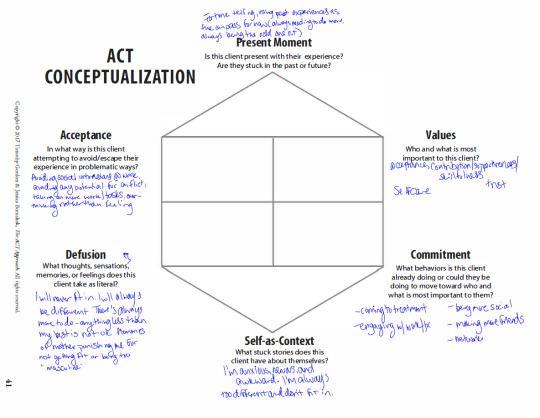
YSQ-R Table
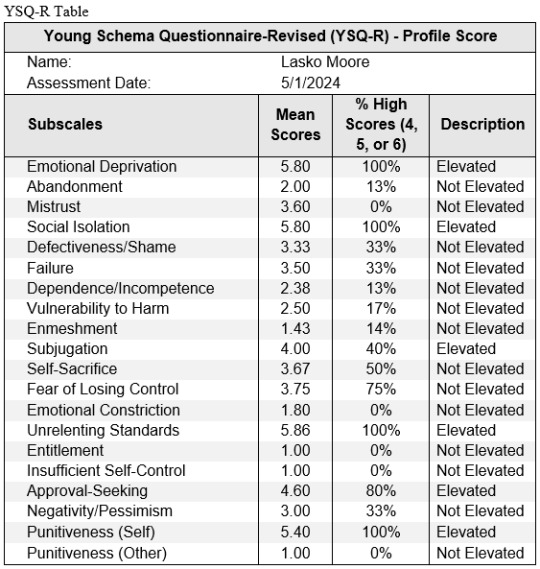
YSMI Table
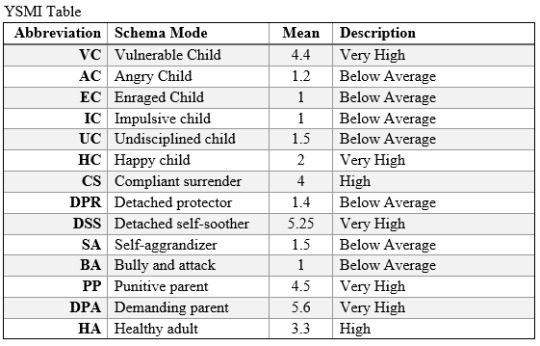
That's all, folks!
58 notes
·
View notes
Text

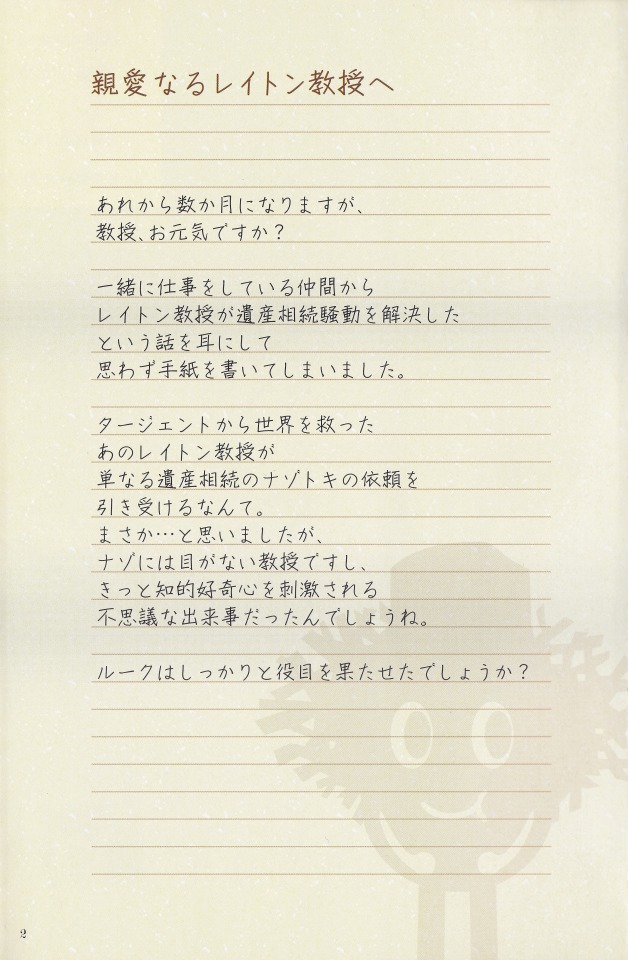
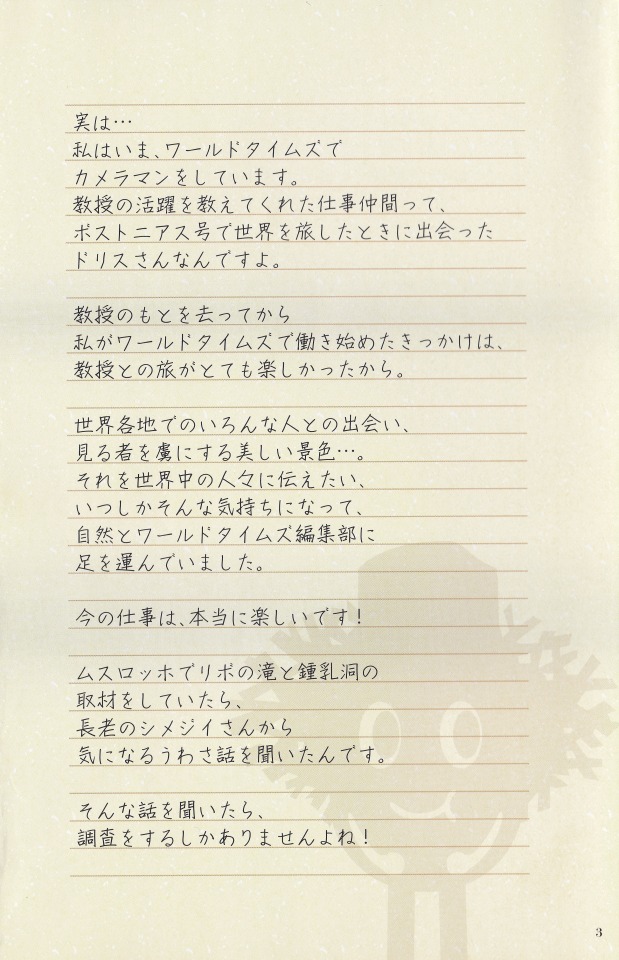
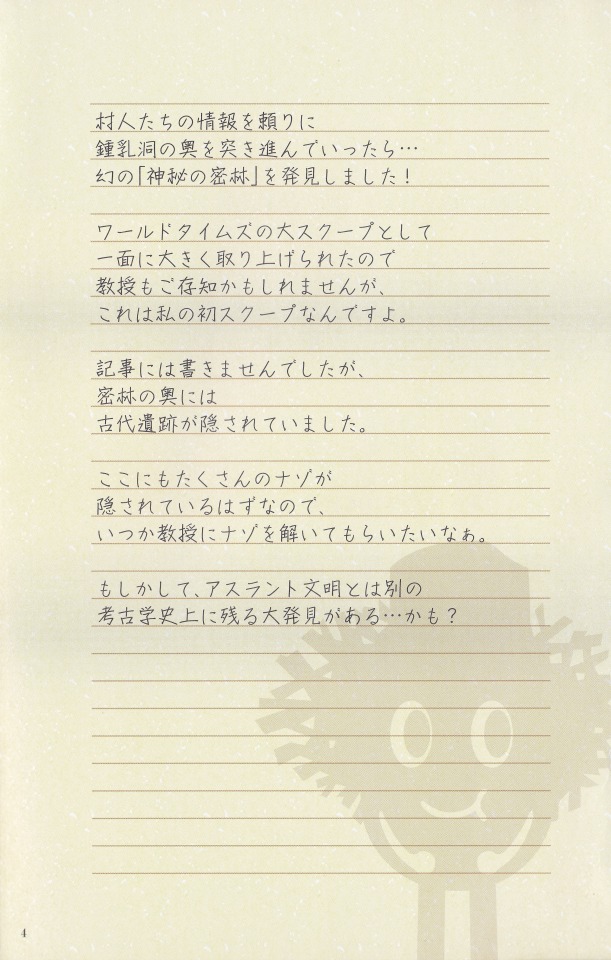
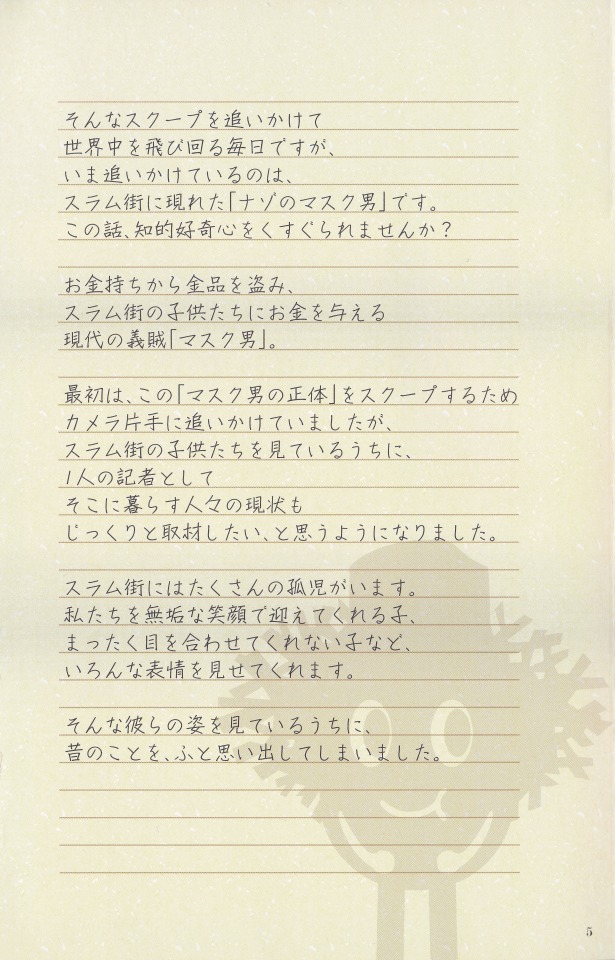
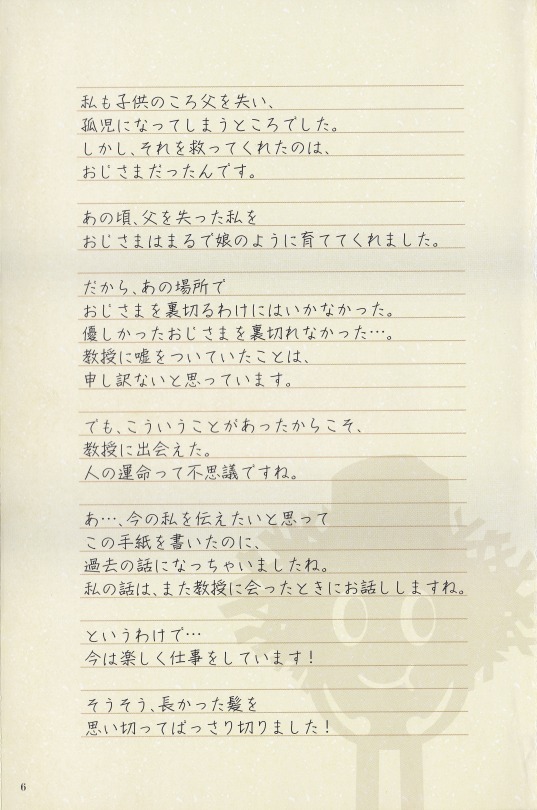
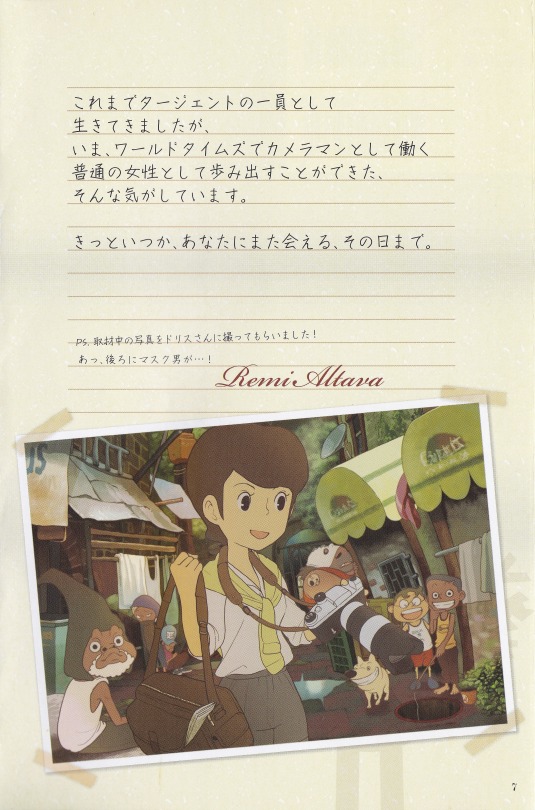

Did someone ask for more scans? No? Too bad, have more scans.
Emmy's letter to Professor Layton, post-Curious Village. The fabled letter, which can only be accessed properly if you rip open your copy of the Japan-exclusive Azran Legacy Guidebook (more or less).
Years ago, there were photos and a fan-translation floating around on tumblr. Now, I give you the new and high quality version, as well as a full transcript. You're welcome :>
It's been literally eight years since your post, but since your tags say that you wanted to be warned if a better scan were to be made, well... Here you go @puzzilitis x) I'm also tagging @the-azran-legacies, but I'm pretty sure your blog is completely dead since this translation post seems to be its latest sign of activity, and that was ten years ago.
Seriously though, just in case you get to see this -- thank you both so much for what you did all these years ago. Without your posts, I might never even have heard that this letter existed in the first place! Or, well, I likely would have heard of it by now given the fact that I've been documenting every single Layton media I can find -- but I would have lived through an entire decade of ignorance by that point.

The translation below has been done exclusively with DeepL because my free time is limited, sorry for that ^^' If you want another one in order to compare, you have the one linked above, and I will likely make another one later (much later).

みんなのエピソード21|レミからの手紙
Everybody's Episode 21: A Letter from Emmy
親愛なるレイトン教授へ
Dear Professor Layton,
あれから数か月になりますが、教授、お元気ですか?
It's been a few months since then. Professor, how are you?
一緒に仕事をしている仲間からレイトン教授が遺産相続騒動を解決したという話を耳にして思わず手紙を書いてしまいました。
When I heard from a colleague I work with that you had solved an inheritance dispute, I couldn't resist writing to you.
タージェントから世界を救ったあのレイトン教授が単なる遺産相続のナゾトキの依頼を引き受けるなんて。まさか…と思いましたが、ナゾには目がない教授ですし、きっと知的好奇心を刺激される不思議な出来事だったんでしょうね。
How could the very same Professor Layton who had saved the world from Targent, now accept a mere inheritance puzzle request? I could not believe it… But you always had a penchant for puzzles, so I am certain that it had to be a mysterious event which truly stimulated your intellectual curiosity.
ルークはしっかりと役目を果たせたでしょうか?
Has Luke fulfilled his role well?
実は…私はいま、ワールドタイムズでカメラマンをしています。教授の活躍を教えてくれた仕事仲間って、ボストニアス号で世界を旅したときに出会ったドリスさんなんですよ。
By the way... I am now a photographer for the World Times. The colleague who told me about your activities is Doris. We met her when we were travelling around the world on the Bostonius.
教授のもとを去ってから私がワールドタイムズで働き始めたきっかけは、教授との旅がとても楽しかったから。
I started working for the World Times after I quit my job as your assistant, since I enjoyed the journey with you so much.
世界各地でのいろんな人との出会い、見る者を虜にする美しい景色…。それを世界中の人々に伝えたい、いっしかそんな気持ちになって、自然とワールドタイムズ編集部に足を運んでいました。
Meeting all kinds of people in different parts of the world, finding beautiful and captivating landscapes… I wanted to tell people all over the world about these experiences, and this is how I naturally came to visit the World Times editorial office.
今の仕事は、本当に楽しいです!
I really enjoy my current job!
ムスロッホでリボの滝と鍾乳洞の取材をしていたら、長老のシメジイさんから気になるうわさ話を聞いたんです。
While I was reporting for the Ribo Waterfalls and the limestone caves of Musloch, I heard interesting rumours from the elder, Mr Simejii.
そんな話を聞いたら、調査をするしかありませんよね!
After hearing such a story, I simply could not resist investigating!
村人たちの情報を頼りに鍾乳洞の奥を突き進んでいったら…幻の「神秘の密林」を発見しました!
After going deeper into the limestone caves, by relying on the information the villagers gave me… The fabled "Mystical Jungle" has been discovered!
ワールドタイムズの大スクープとして一面に大きく取り上げられたので教授もご存知かもしれませんが、これは私の初スクープなんですよ。
You may have already known of it since it was featured as huge news on the front page of the World Times, but this was my first scoop.
記事には書きませんでしたが、密林の奥には古代遺跡が隠されていました。
We did not mention it in the article, but there were ancient ruins hidden deep in the jungle.
ここにもたくさんのナゾが隠されているはずなので、いつか教授にナゾを解いてもらいたいなぁ。
There must be a lot of puzzles hidden there. I hope you will solve them one day.
もしかして、アスラント文明とは別の考古学史上に残る大発見がある…かも?
Maybe there is another major discovery in the history of archaeology that is unrelated to the Azran civilisation… maybe?
そんなスクープを追いかけて世界中を飛び回る毎日ですが、いま追いかけているのは、スラム街に現れた「ナゾのマスク男」です。この話、知的好奇心をくすぐられませんか?
I spend my days travelling around the world, chasing this kind of scoop. What I am chasing now is a "Puzzling Masked Man" who has appeared in the slum quarters. Doesn't this story tickle your intellectual curiosity?
お金持ちから金品を盗み、スラム街の子供たちにお金を与える現代の義賊「マスク男」。
The Masked Man is a modern-day righteous bandit who steals money and goods from the rich and gives it to the children in the slums.
最初は、この「マスク男の正体」をスクープするためカメラ片手に追いかけていましたが、スラム街の子供たちを見ているうちに、1人の記者としてそこに暮らす人々の現状もじっくりと取材したい、と思うようになりました。
At first, I followed this "Masked Man," camera in hand, in order to get a scoop on his identity. But as I watched the children in the slums, I began to think that, as a reporter, I should rather take the time to cover the current situation of the people living there.
スラム街にはたくさんの孤児がいます。私たちを無垢な笑顔で迎えてくれる子、まったく目を合わせてくれない子など、いろんな表情を見せてくれます。
There are many orphans in the slums. We see many different faces, from those who greet us with innocent smiles to those who don't make eye contact at all.
そんな彼らの姿を見ているうちに、昔のことを、ふと思い出してしまいました。
As I watched them, I suddenly remembered something from the past.
私も子供のころ父を失い、孤児になってしまうところでした。しかし、それを救ってくれたのは、おじさまだったんです。
I lost my father as a child and almost became an orphan. But Uncle Leon saved me from that.
あの頃、父を失った私をおじさまはまるで娘のように育ててくれました。
Back then, I had lost my father, and Uncle Leon brought me up as if I were his daughter.
だから、あの場所でおじさまを裏切るわけにはいかなかった。優しかったおじさまを裏切れなかった…。教授に嘘をついていたことは、申し訳ないと思っています。
So this is why I couldn't betray him in that place. I couldn't betray my kind Uncle Leon... I truly am sorry that I lied to you, Professor.
でも、こういうことがあったからこそ、教授に出会えた。人の運命って不思議ですね。
Still, it was because of these things that I met you. The destiny of people is a curious thing, isnt' it?
あ…、今の私を伝えたいと思ってこの手紙を書いたのに、過去の話になっちゃいましたね。私の話は、また教授に会ったときにお話ししますね。
Ah... I wrote this letter in order to tell you how I am now, but all this is about the past. I will tell you my story when we meet again.
というわけで…今は楽しく仕事をしています!
So, all that to say... I really am enjoying my work now!
そうそう、長かった髪を思い切ってばっさり切りました!
Yes, I also cut off my long hair in a very drastic way!
これまでタージェントの一員として生きてきましたが、いま、ワールドタイムズでカメラマンとして働く普通の女性として歩み出すことができた、そんな気がしています。
I have lived my entire life as a member of Targent. But now, I feel that I have been able to step forward as an ordinary woman, who is now working as a photographer for the World Times.
きっといつか、あなたにまた会える、その日まで。
I am sure that one day, we will meet again. Until that day.
PS.取材中の写真をドリスさんに撮ってもらいました!あっ、後ろにマスク男が…!
P.S. Doris took photos during the interview! Ah, the Masked Man is in the background...!
Emmy Altava

Important translation note: Emmy calls Bronev "oji-sama," all in hiragana, which makes it unclear whether she is related to him by blood or not (おじ means "uncle," but can also just mean "man who is older than the speaker" (at least from what I know)).
The Eternal Diva novel introduces Emmy as "a beautiful woman of Asian lineage" (and yes, I know, Asia is huge with a lot of different lineages, and I don't know either which corner of Asia is being talked about here), so make of that info what you like. In order to leave it as ambiguous as I could, I replaced all instances of "oji-sama" with "Uncle Leon."
There might be a few other translation changes I made, but I think this was the most important one to take note of.

By the way, I actually scanned the whole guidebook, and I will share it when I can (though don't hold your breath, as you probably know I am currently juggling between way too many projects). The scans aren't ready to be shared yet because they were basically done with me not really caring whether the pages would be perfectly straight, upside down, etc, and as such they need some editing.
(I checked and the resolution of the scans is high enough to make it so that editing doesn't hurt the quality in the slightest. I swear that when the scans are finished editing, you won't even realise it and they'll look just as good as what you're seeing above with Emmy's letter).
The editing also includes linking the pages together for aesthetics purposes. Some pages have artworks that spread over both pages, so I'm doing my best to make it look seamless! Here, have an example for the first double page in the book that really does it:

As you can guess, editing each of the 128 pages in order to get this result is time-consuming, and translating that is going to be a doozy. But let's just appreciate how awesome it will be once it's done, eh? :D
Anyway, next up on the blog is going to be the Eternal Diva novel translation. I'm still working on getting some buffer done, but hopefully the first "chapter" will get out soon! I'd like to post on Saturdays. Let's cross our fingers for tomorrow. Or next week, if today's translation is enough to satiate you all for now!
#professor layton#emmy altava#azran legacy spoilers#azran legacy#professor layton and the azran legacy#professor layton transcript#azran legacy guidebook#emmy's letter#layton preservation
268 notes
·
View notes
Text
𝐚𝐛𝐨𝐮𝐭 𝐚 𝐠𝐢𝐫𝐥 | 𝐰. 𝐦𝐚𝐱𝐢𝐦𝐨𝐟𝐟

summary: no one needs to know that the president of the most admired sorority on campus has a crush on you.
warnings (18+): a brief smut, Wanda cussing like a mean girl, R being a little shit, slight corruption if you squint. MINORS DNI.
pairing: sorority!Wanda x dirtbag!reader
word count: 3k
A/N: this is definitely not my best work by far, but I'm testing the tone of sorority!Wanda until I can write her in a way I like, so whoever reads this will be my test subjects lol
masterlist|
༺ᱬ༻
A pale and motley patch of white sunbeams smearing the glass of a nearby window was what captured your attention for a few bits of seconds that, together, would complete more than the whole of a minute. The window opened to the blue sky outside, to the large green trees rooted there near the building in a healthy lawn, with brownish and thick trunks spaced by stripes of daylight that sent a forest air to that specific region of the campus, which used to be well ventilated.
A deep yawn was stifled by a mouth just behind your head, both your elbows raised across the face of the hard plastic table. In the middle of that spring semester, the white-painted walls of the tapering classroom, which inclined down in steps from student seats that sloped toward Professor Harkness's rectangular desk, into a lesser concavity when pitted against the chairs of the students, they looked chubbier and sunnier than usual, which is why you had to wear light clothing with few layers to make it through that class until the end of the term without sweating to the point of dehydration.
“Shit...” was the tiniest curse uttered under your breath.
The friction caused by the tip of your pen across the paper ended up writing an inexact word in your fast informal handwriting, which you, annoyed, tried to cover up with an eager flick of the wrist towards the right. A wide thin line had slipped above the dashed letters in dark blue ink – because you saw yourself viscerally unhappy about your succinct spelling error (since it is written “economy”, and never “econonomy”). Several other students eagerly tapped their fingers on laptop keyboards (clatter of keys pounding across the classroom), but something nostalgic in you preferred to stick with good old paper and ink.
After scribbling such inaccuracy into your handwritten notes, you resumed your transcripts of what was taught by your teacher, trying to record the minimum necessary. You chewed gum with a cinnamon-synthesized flavor, a customary practice. A pen rolled and clattered to the floor, and then someone reached down to pick it up.
Your committed gaze, therefore, migrated from the articulated writings in your notebook to the professor's figure in front of the rest of the room, leaning with her hip against her long and low table, facing a certain handful of vivacious and diligent students. Agatha Harkness kind of reminded you of the Wicked Witch of the West from the Wizard of Oz – maybe it was her long, thin nose, or the exotic mannerism of her hands.
“So, ladies and gentlemen, to fully understand Austen's novels it’s first important to understand the finer points about economics and mid-nineteenth-century class relations that are portrayed in the relationships between characters in several of her works.”
Blustered Miss Harkness with her thick chestnut locks, her cashmere waistcoat looking more violet than usual on this hot sunny day, her arms clasped close to her ribcage, her cream-colored button-up shirt with the sleeves perched up to her elbows.
“It's not just about dating and marriage or strong female characters that this work is about, however that is what some uninformed people out there might assume. Of course, female empowerment is a crucial part of these novels, but it’s actually important for us to recognize the irrefutable fact that Austen has always dealt with social classes in her works, and because of this she is full of important economic themes that can be pointed out by the reader. Does anyone know what I'm talking about, people? Somebody? Anybody?”
You kind of chortled to yourself, reaching into your chair for a more comfortable position than had ever been found. You could well respond to such an inquiry, so much so that you could presage the formulation of the words that climbed your throat and lodged at the tip of your tongue, prepared to be pronounced in front of the rest of the class. But you just knew there was someone else who would be frothing to answer that question.
The right hand raised in the air, greedy for the intellectual realms of the demanded explanation, had not been yours at all. And silently, just an unimportant listener, you waited for the well-known answer to come, never exposing yourself any further than was necessary like a withdrawn, flowing animal of self-preservation and self-doubt, a silly little smile forming the outline of your lips.
“Yes, Miss Maximoff ?” Agatha pointed with her chin at a few tables behind yours, two steps up from where you were. Her neck craned back, and air seized her lungs in anticipation.
Wanda Maximoff, self-absorbed and with a shrewd, focused countenance, could be found just a tiny amount of meters uphill from where you were located. She was liked, adored and revered, a name passed around campus with airs of admiration, high in the social hierarchy of sororities and fraternities around the university. She had kind green eyes, but the kind of kindness that shouldn't be confused with naivete, something Wanda didn't have at all.
She was a president, the most prudent of them all, appealing even to the eyes of the university who were excluding or not adept at the Greek way of life, known for leading the chapter where some of the girls who turned heads around resided. She was a necessity, a public figure among other young people her age. And, in front of her, you smiled small. She was the most beautiful girl you would ever meet in your life.
Among your many other classmates scattered throughout the classroom, she was the only one wearing high black stockings under a pleated skirt checked in a gray fabric, highlighting the soft skin of her legs so strictly stunning and painstaking.
The long, dark locks were thus partially held back from covering her stunning face, tucked behind the shells of her ears. Fingers with polished black enamel nails, pale extensions adorned with silver rings of the most variegated shapes and sizes, parked the digits over a keyboard of a small portable computer placed right in front of her.
Her wardrobe always looked like a venustic mix of Cher Horowitz clothes and Nancy Downs accessories, choosing to constantly alternate between the two extremes of preppy and dark, usually finding herself somewhere in the middle of the two.
“Most of Austen's characters can be classified as belonging to the middle class of society, and she has never had a problem portraying the inequality between them and members of other social classes, both lower and higher,” irises jadish seethed in a well-educated glow, since it came as no surprise to anyone just how enthusiast of Jane Austen literature Wanda Maximoff could be.
“In fact, Austen's novels portray various socio-economic factors in 19th century Britain, specifically in matters of wealth and poverty and the values of coins at the time, as well as how much capital these people could have even at that time. It was never just about love and marriage.”
Wanda finished off in superb mastery by flashing an exultant little smile, scrunching a patch of skin from her nose like a fluffy little bunny, exuding airs of quite self-satisfaction. When her emerald gaze engaged yours across that sea of heads, you offered her a funny wink with your right eye, to which Wanda only chuckled and shook her head provocatively.
“You are absolutely correct, Miss Maximoff,” Professor Harkness greeted the student proudly from the front of the students as she stood, “I couldn't have said it myself in better words than that.”
You just rolled your eyes in their sockets playfully, resting your chin in the palm of your right hand whose elbow was supplanted by the face of the table. Someday Agatha would still end up adopting Wanda if she could.
ᗢ
“Oh fuck , Y/n!” The lascivious voice growled, reverberating, like a breath of apex, through the walls of the second-floor women's restroom of the university's Languages and Literature building.
“Just like that baby, oh–!” Wanda trapped her bottom lip with her own incisors, confining a moan to the deepest core of her being, her two inner thighs constricting her ears almost deafeningly.
Even that same morning after the classroom, with the emptiness there, a faucet dripping, only the linoleum floor could hear the hums uttered by a breathless Wanda, with her mouth tightened and her face burning in red embers like a peach in her sharp cheekbones, feeling just as satisfied as you prolonged her peak smearing your entire face in erratic movements of her taut hips.
You rubbed her swollen clit against your upper lip, that little knot of nerves squirming blindly in search of prolonging that sensation of pleasure that seeped into her bones, the plaid skirt sharply bunched below her navel. The two of you were squeezed into a bathroom stall, you on your knees and she sprawled all over the sides of that tight little space.
“Fuck,” Wanda gasped in a blink of slow eyelids, very sparingly holding your head against her pussy with the open palm of her right hand, “Fuck, baby…”
Ring-wrapped fingers found themselves fondling between the roots of your hair, the other girl's head hunched back, her lip gloss smudged. When you, as serene as you could be in the face of the beautiful sight of her orgasm, sank your teeth into a light open bite on her inner thigh just to make fun of her, Wanda moaned sensitively and increased her grip of deferred fingers against the roots of your hair.
“N-no,” she squealed in a breathless fashion, her brow creased like someone in pain, “No more, please, I can't take any more.”
“Okay, fine,” you smiled before gracing the bite mark with a slightly swashbuckling chaste kiss, a silent apology so close to her abused cunt dripping in a hangover of pleasure, “I want you to walk out of here with your own legs.”
You, kneeling down to her level, turned your face away from the gap between Wanda's opalescent crotch, still pulsing on your tongue the vigorous taste of the juice coming from her pulsing vagina – the skin down your chin and around your mouth completely burnished in a brilliant radiance from the president's overwhelming orgasm just above your head, chest heavy into her thin fabric blouse, uneven breathing and vaguely wobbly knees.
You scrambled to your feet, stretching your knees inside your baggy jeans, not much to say after accomplishing your mission but offering the sorority girl a smug crooked smile, bringing your knuckles up to sweep away the wetness out of your face. Wanda looked even prettier being panting and flushed after you wrung an orgasm out of her guts.
“My God, pretty girl,” you bit back a smile at the commission of your glossy lips by her cum in a brief tone of astonishment, “You really made a whole mess of my face, huh–”
“Shut your pretty fucking mouth, you're pissing me off.”
Before you could even entertain the idea of cleaning yourself with soap and water, however, a hand pressed the skin on the back of your neck and, in a reckless way, pulled you into a rough kiss, Wanda going forward toward your face sipping from her own orgasm built up by your mouth. And then, a tongue emerged between the pulps of her lips, dragging itself through the commission of your mouth, so much more ecstatic after an extravagant orgasm.
As you parted when oxygen was needed in your burning lungs, you blinked slightly foolishly, so that both your noses were almost touching in midair as Wanda smiled voluptuously at your lethargic blinks, her upper lip pressing lightly on her rosy, somewhat puffy lower lip.
The dark gazes screwed into an invisible line, the verdant darkness taking pleasure in your goofy silence, amused by your silliness. Wanda smiled catlike, the soft fingers of digits stroking the skin from the nape of your neck just below your hairline.
“Well,” you lisped somewhat not knowing what to say under your breath, “Maybe you don't need to walk out of here on your own two legs exactly…”
And your mischievous right hand threatened to touch her again, making your way to the center of her thighs, but as overstimulated as she was, she was firm in preventing you from squeezing her one more time before your fingers crossed the hem of her skirt.
“Don't you even dare to start,” the girl finally walked away, barely managing to unfold the skirt from her upper thighs and smooth the creased fabric with her fingertips before pushing the laminate door out, her lacy panties vaguely forgotten inside the back pocket of your jeans.
“I need to study for a test because you know, unlike you I really care about my grades. We value our good academic performance at Omega Mu Zeta and I am their president, so I–”
“You need to set a good example, yeah, I know.”
Wanda, however, just threw you a glare over her shoulder, as flippant as could be, “You're annoying.”
You rolled your eyes out of their sockets dazedly before following Wanda's sweetly woody scent out of the bathroom stall. That girl was your personal glory, but she would be your undoing at some point in the near future.
“C’mon pretty girl, my grades are pretty good, if you really wanna know,” you propped your hips low beside the pale china sink she was standing in front of, taking in your own appearance reflected in that rectangular mirror on the wall.
“Not being a teacher's pet doesn't necessarily mean I'm a bad student, y’know? That's a very bad impression you have of me, it's almost even offensive.”
“Fuck you,” she stared at her own reflection in the mirror, fixing, with the tips of her fingernails painted in dark nail polish, the cherry gloss on her lips, “I'm not a teacher's pet, I just work hard in understanding the subject. Unlike you.”
You smiled, scrutinizing the sight of the emerald-eyed girl reflected in the mirror – and how beautiful she was, Wanda Maximoff with her cherry lip gloss.
“I certainly have not the talent which some people possess, of converting easily with those I have never seen before,” you recited aloud, your gaze never letting go of hers which, by the reflection in the mirror, turned all emerald attention to her figure with arms crossed before her chest.
“I cannot catch their tone of the conversation, or appear interested in their concerns, as I often see done.”
Wanda then turned her face towards him, and one dark brow creased mockingly towards the middle of her forehead. The makeup was very little, accentuating her natural beauty by her cheekbones and jawline curved around the edges, and the dark eyeliner was always sharp, done with exquisite mastery over the almond-shaped eyelids.
“Did you just recite a line from Pride and Prejudice to me just to prove you know what you're talking about?” she smiled a little at your boldness.
“Maybe,” you shrugged smugly.
“That doesn't prove shit.”
“Proves that I’ve read the book,” you offered her a mocking brow lift.
“How old are you, you idiot, five?”
“Six actually,” you kind of chuckled in return, “But then, did it work? Did I impress you?”
Wanda looked at you for a studious half second, scrutinizing your figure with smart green eyes shimmering the color of summer grass.
“I hate you, you little shit.”
With intensity similar to the magnetic pull of a magnet, Wanda stepped forward with her white boot and took your face from the sides with both hands, merging your lips in a rhythmic kiss in harmonic cadence, which quickly made you whimper in dizzying contentment sharpened through your veins. Lovingly, you allowed yourself a smile at the corner of her pink lips, your heart pounding in the right side of your chest as her forearms laced tightly around the outline of your neck.
The kiss deepened into a need, their tongues twining until they were both panting softly, wet foreheads touching each other. You smiled mischievously against the commission of Wanda's swollen lips.
“My room on Friday after school?” you breathed in front of her face, “Darcy is going out with someone, so... I'll have the room all to myself.”
“Y/n,” Wanda whistled your name, her frown creasing slightly at your not-so-innocent suggestion, “I really have to study for that test, you know Mr. Pym is a real dictator in his classes–”
“And who says we are going to do anything other than study?” you smiled complacently, “Geez, Wanda, that perverted mind of yours goes everywhere, doesn't it? And here I thought you were a good girl, who knew you had that in you?”
“Stupid,” she twirled with her eyes comical, bent wrists resting above your shoulders, “Seriously, I need to keep my grades up—”
But the phrase died in her throat when voices could be heard in loud laughter pouring through the bathroom's main entrance, away from the secluded area of prying eyes where you belonged together. And at that notion something shriveled and deflated inside your chest. You actually looked forward as little as you could to those moments out of situations where you could rob her of the rest of the outside world, because that meant the fantasy was coming to an end.
Wanda was the respected president of Omega Mu Zeta, she was a social figure, she was anything she could be, except being yours. She was nobody's, indeed, but that also said she wasn't yours. But when she threatened to draw her body heat away from your torso, you kept your solemn grip firm on her hips through the fabric of her gray skirt, pinning her in place.
“Y/n,” she tried, hands squeezing your shoulders, a warning that reality was piercing sharply into that little bubble that encompassed you and her.
"Friday night? C'mon pretty girl, please? We'll just study, I promise. Girl Scout word.”
A brief shadow of conflict seemed to glide through the swirls of emerald irises, deepening that clear hue of her eyes, before Wanda tipped her chin back over her left shoulder covered by a blazer with a matching print and skirt, searching for an onlooker who wasn't there, only then to turn to your face and, in such a way, sigh a lame sigh before your expectant gaze. You always brought down all the resistance she seemed to want to lift.
“Okay,” Wanda relented, her shoulders slumping into the plaid blazer, “Okay, Friday after school. But as long as it's for us to actually study, you hear me? And I mean it.”
“Sure,” you muttered in jovial good humor, “We'll study, trust me.”
“Seriously, Y/n, no jokes,” a pair of glossy velvety lips pressed against the contour of your jawbone, right next to your pierced earlobe, “Or you're going to regret this,” Wanda it whispered on a warm breath, before there it plunged a painful bite into your epidermis.
A tiny squeak of pain piped out of your throat, shrugging your shoulder closer to your jaw and away from the other girl's half-open mouth, “Ouch Wanda, what the hell, what did you do that for?!”
“For you to remember to behave yourself,” she smiled with a darkly mischievous gleam, “Now I really have to go, baby. I text you on Friday.”
And then Wanda walked away, and with her went the enticing aroma of woody perfume mixed with strawberry dry shampoo, a fragrance that couldn't be described in any other way than just scarlet, closed, imposing and absolutely sexy in the right dosage. But the next person who squealed in pain was the president herself, whereupon you playfully raised your right forearm to deliver a slap of stiff, splayed fingers against the smooth skin of her panty-less ass beneath her pleated skirt, rocking the fabric of the short garment.
When Wanda tipped her chin back to curse you under her breath “Asshole,” the tops of both her cheeks gleaming in a caustic blush, you just grinned mischievously with your tongue sticking out between your teeth. And so, you knew that on that Friday, she would pay a visit to your room. After all, you didn't need more than that.
#wanda x you#wanda maximoff#wanda maximoff x reader#wanda maximoff x y/n#wanda maximoff x you#wanda reader#wanda x y/n#wanda maximoff imagine#scarlet witch x you#scarlet witch x reader#scarlet witch#scarlet witch x y/n#elizabeth olsen#elizabeth olsen x reader#elizabeth olsen x you#elizabeth olsen x female reader#marvel#mcu#marvel cinematic universe#fanfic
980 notes
·
View notes
Note
what's grade inflation? why does it exist?
For more information on grade inflation, I highly recommend typing in "inflation" on AO3 and...
Sorry, have had no rest and very likely won't get much rest today, because no rest for the wicked...or grad students, so I had to get the cheap humor out of the way.
Grade inflation is, essentially, a system in place at many universities where the graders are heavily pressured into giving higher grades to their students. This is particularly prominent at elite universities, where Mommy and Daddy do not want Schnuggiekins to have anything as undignified as a B on their transcript when they are set to be a senator, but it is also common across the board, including in high schools and, joy of all joys, it is only getting more prevalent, as schools are essentially in a nuclear arms race to deliver higher grades, since it means they can say "Look! 98% of our students graduated with a 4.0!" It looks bad when students don't pass, so students *generally* pass no matter what. Doesn't that make you feel optimistic about the future?
And because it is common across the board at these places, that essentially forces conformity, because if you do NOT give them at least a B+...or sometimes an A-, you will get undergrads complaining about why you were mean to them, because the OTHER TAs would do the same, and student evaluations are VITAL to your career stability down the line. So, besides GENUINELY wanting to be seen as easygoing and relaxed (because, remember, if you're a woman in academia, you ALSO have to beat back the allegations of being a Bitch...and there have been numerous surveys done to indicate that student evals can be biased), it is also unfortunately...not MANDATORY, but something that I do feel heavily pressured by. People forget that the power dynamics between TAs and their students aren't always clear cut -- I'm in a position of authority, and I recognize that and am ALWAYS operating under that awareness, but they can also severely impact my career with student evals...and inconvenience my life if they decide to dispute a grade, such as when I had people emailing me on Christmas about why I gave them an A-. (The answer: Because they had earned, in my opinion, an A-.)
The result is that, functionally, I am grading, roughly, on a scale of B- to A, which means that my grades can't really reflect the nuances that can exist in these things. I have to put things that are "borderline grad student level work" alongside "well. you didn't do anything WRONG". (There have been occasions where they have gotten the Email Of Shame from me where I flat-out refuse to grade it.)
At my undergrad, in my community college (which people always like to act was some kind of...inferior education), if I handed in a paper with numerous typos, it would have been an A- at best. Potentially a B+ if my arguments were not up to the highest standard. I turn in an argument with no citations and not much of an argument...honestly probably a C? Maybe? I KNOW some of my professors would have refused to grade them. But I would feel pressured to give the same paper a B with a reminder to please cite their sources next time.
And, again: I do, genuinely, care for my students. I believe that, for the most part, they ARE trying their best. I don't enjoy being harsh on them, and I don't expect them to be writing at a grad level. I remember being an undergrad -- it isn't like it was that long ago, it's only been six years. I made a lot of mistakes. Including some very stupid ones. And I was lucky to have very patient professors who ALSO weren't afraid to call me out if I didn't do a good job. But, because of systemic issues beyond my control, I can neither give them a real wake up call so that they can improve OR truly reward them for outstanding work.
55 notes
·
View notes
Text
Practicing the Arabic Alphabet
I honestly lucked out so much taking Arabic in college and learning basic MSA reading/writing/grammar from an excellent professor but I’m gonna compile the most useful things we did in class here to help people learning on their own (this isn’t focused on resources, just strategies, might do a separate post with worksheets and videos but they’re pretty easy to find):
Get the alphabet in front of you. We had a packet with a page for every letter with the letter written in the three positions, pronunciations, names, and lines to trace and write like 100 times. And then a page with all the diacritics. These sheets abound for free online. Make yourself an alphabet packet. Watch copious videos/listen to recordings going over the letters and how they sound. Repeat it back. Work in chunks and don’t move to the next set until you can recognize and write the current set.
Tracing! Learn to write the letters right to left and with the proper order from day one. This sounds obvious but people in my class were still drawing letters left to right as isolated shapes next to each other so idk maybe it’s not. Having nice handwriting in Arabic is both satisfying and absurdly helpful. Learn how the letters connect. Spend more time than you think is necessary on this.
Write English words and sentences phonetically using diacritics and Arabic letters. Do not worry about translation and spelling. Just make the connection between shape -> sound. Use anything you have. Lists of names, entire pages from books and magazines, texts from friends, menus. Literally anything. Work through how to make those words with the new alphabet. You will learn a surprising amount about the language and pronunciation by doing this. How do you translate sounds that don’t exist? What about multiple sounds where English only has one? Read it back with the accent.
Transcribe English phonetically. Same as above but do it without the English in front of you and just listening. Make that voice to visual connection.
Hand write word lists once you get to vocab. Then type them on your laptop and phone (if you want to be able to type in Arabic, also highly recommend a keyboard cover with the letters next to the Latin alphabet). Copy all the diacritics even though that’s not necessarily how native speakers do it. I have a notebook that looks like it belongs to lunatic toddler because it just has the same words and snippets written over and over again lmao.
Finally, transcribe Arabic. If you can use something with a transcript or captions to check your work even better! But don’t check for perfect spelling, check you used mostly the right letters and marks. You will definitely smash some words together and miss a silent or elided letter or something but try and hear the difference between ع and ا or ق and ك etc. The more sources you use the better.
We did this for one full semester of 50 minute classes 3 times a week while sprinkling in some basic vocab towards the second half. It felt like forever at the time but I never lost my ability to phonetically read and write in Arabic despite 4 years of complete non-use while living in America in an area without any significant Arabic-speaking population or language presence. It is absolutely CHISELED into my brain.
#arabic langblr#learning arabic#ref#reference#langblr resources#langblr#language lessons#language resources#language learning#mine
112 notes
·
View notes
Text
“Philosophical and Personal Musings on the Wizard Stone and the Axiom of Proliferation” – An Essay and Divinations for Arc 3 of “The Wizard, the Witch, and the Wild One”
From the Desk of The Bard Bullseye
Happy Birthday, Worlds Beyond Number!
Spoilers abound! This is an essay discussing the actual-play podcast “The Wizard, the Witch, and the Wild One” from the fine folks at @worldsbeyondpod It is an expression of my analysis of and engagement with the content of the second arc of the show and also contains some speculation about future plot and current themes. These interpretations are my own, include some reflections on my personal philosophy, and are written in a mostly academic style of writing (be warned, it’s around 3,000 words!). If you do read through it, I hope you find my points interesting and thought-provoking regardless of whether or not any of it turns out to be true (and I have done my level best to adhere to the facts of the story thus far, with transcript pages and timestamps cited when available/applicable).
Abstract (TL;DR, or I ain’t reading all that, but I’m happy for you):
The Wizard Stone’s discovery that the Axiom of Proliferation is untrue has major implications for the overarching story and the direction of the next arc. Herein, I explore my reaction to this moment in Episode 19 and how my experience and own philosophy potentially align with Stone’s. Then, I examine the logic of her argument and its implications for the greater worldbuilding in Umora. Specifically, there is a fundamental problem with the way that wizards are using the lingua arcana that is affecting the link between the Spirit and the Mortal worlds (i.e., the “greater binding”), and this is leading to detrimental effects. This, I believe is ultimately what Grandmother Wren (and now Ame) and Coven of Elders (and possibly the Man in Black?) are concerned with, though they have come to vastly different conclusions about who is at fault and how to solve this problem, which are yet to be revealed in the forthcoming third arc (see footnote 5).
Introduction
Something has piqued my interest and scratched a deep philosophical itch for me in the second arc of “The Wizard, the Witch, and the Wild One.” While the first arc introduced the characters, explored ideas of ‘quest fever,’ and masterfully wove in lore and character motivations for reclaiming Eursulon’s sword, Wavebreaker, the second arc has expanded upon the characters and their relationship to the greater philosophy of the Citadel and Umora.
I don’t usually speculate where stories might go next or craft my own fan theories. Especially for ongoing projects (i.e. TV shows, actual plays, books in a series, etc.), I tend to be along for the ride, and I spend time analyzing the story being told and the characters within. And rarely do I put these thoughts to paper, at least not coherently; I am more likely to ramble endlessly to a friend or lurk on Discord for others’ opinions, chiming in occasionally. However, I have noticed some things brewing in this arc that I wish to discuss at-length and even speculate upon: my perspective and analysis of the philosophy of the Wizard Stone, and the possible implications for the forthcoming third arc.
I don’t often see myself in stories. Not to say that I don’t see myself or parts of myself represented in media: i.e. demographically, socially, politically, etc., but rarely do I find a specific character or character motivation that ‘snipes through the duplex door’ where I go “oh shit that’s me” or “I relate to this on a deeper level.” This happened to me in Episode 19, when Suvi is investigating the records of her mother’s early time in the Citadel: her expulsion from the College of Divination and readmittance to the College of Abjuration because she had accused one of her professors of “treason against magic itself.”
Upon her dismissal from the Citadel, Stone wrote a dissenting missive to the Archmagi of the Citadel regarding one of the three metaphysical axioms, the Axiom of Proliferation, and how this particular axiom “does not describe any actual truth of the lingua arcana, nor does it more broadly describe any facet of the greater binding” (Ep. 19, transcript p. 12). She goes on to posit that not only is it “pure intellectual technology,” but that its continued acceptance as fact is a “danger to the future of wizardry” and “[a] stain on the face of magic itself” (Ep. 19, p. 12). An axiom in this context is described as “simple… laws that are given to young wizards about broad truths of spell casting in general… that are true across spells [and], … different schools of magic” (Ep. 19, p. 13). That is, “the Axiom of Proliferation is essentially that the more times a spell is written down … the weaker the spell becomes” (Ep. 19, p. 13).
An axiom as defined in philosophy is a statement that is self-evidently true and serves as a starting point for reasoning. Therefore, any argument against its truth would call into greater question the philosophical foundation of the Citadel itself. If Stone’s claim that this was not a true axiom had not been dismissed swiftly and discredited, it is possible (though highly unlikely, given the power of empire) that this would have led to a redefinition of the philosophy of wizardry in Umora.
This is what struck me like a bolt of lightning while listening to this episode. I did almost this exact thing when I was in grad school!
Stone is… me? Faulty logic and its effects
As part of my master’s degree, I took a philosophy seminar on bioethics, which covered some polarizing subjects and more fringe points of view. Most of these topics cannot be directly studied or supported by scientific evidence, so the conversation and academic debate is largely conceptual or theoretical (i.e., conducting research to investigate these ideas have varying states of legality and moral acceptability) (see footnote 1). This course was excellent and a bit out of my comfort zone, but it challenged me to think critically about fundamental logic and accepted ideas that often go unexamined until they are taken to the extreme. At one point in the semester, we were discussing a particular topic and the current state of debate surrounding it. Immediately, I was perplexed by some of arguments made to justify it, and at first, I didn’t have the language to express why. Much like Stone, I found myself screaming (internally) “you’re all idiots!” or “you’re missing the point/the bigger picture!” or “that’s not how that works!” Essentially, I had arrived at the conclusion that if this idea were to be implemented broadly in society, it would likely have major negative ramifications, and furthermore, not even achieve the desired and purported effect that they were arguing for!
Eventually, I figured out what the underlying problem was: a logical fallacy inherent and unidentified within the current debate. Since scholars had just accepted the argument at face value and moved on, most of the debate was concerned with its future implementation or theoretical follow-on effects on individuals and society at large. I did find some existing papers that danced around the idea of fallacious reasoning (i.e., that the theoretical benefits were greatly exaggerated, if not a zero-sum game, or that the negative long-term effects may outweigh the short-term benefits), but none named it specifically or even examined the logical argument the entire debate was predicated on. So, for my term paper, I researched and wrote about this fallacy, and in it, I discussed how the discovery and acknowledgment of it would reframe the debate and perhaps even bring about reform to existing systems!
In the process of writing and researching, I felt incredibly isolated intellectually (this was also peak-COVID so that didn’t help either). Now that I had put the pieces together, it seemed quite obvious to me, but it was difficult to find supporting evidence or other similar arguments to mine (even if they weren’t breaking the logic down so specifically). Was this thing I had reasoned actually true? Why had no one pointed this out before? What if I’m wrong? What if they’re right and I’m a fool for daring to challenge them? What does my professor think? They’re an expert and approved the topic, so I know I’m not entirely off-base, but do they agree with me? I knew that if I wrote a strong, supported, and persuasive argument, that I couldn’t fail, but I deeply cared whether or not I was actually right. It was also probably one of the first times that I wrote with passion (and specific planning ahead of time!), rather than churning out yet another good-enough research paper (that I may or may not have written days ahead of the deadline or the night before).
Thankfully, unlike Stone, my fears that I would not be taken seriously, or worse, told that I was flat out wrong (and be silenced) did not come to pass—my professor agreed wholeheartedly with my argument that this fallacy is pervasive in the current literature. (Though I feel must disclaim that I still could be wrong in some other aspect of my argument, and that simply arguing the existence of a fallacy can be treacherous! In philosophy, no one ever has the only or complete answer—if they claim to, they are either lying or ignorant.) As part of the course, we did a mock peer review in class and my professor sent us further feedback on our papers after we submitted our initial draft of the term paper.
One particular piece of feedback stands out to me upon reflection and comparison to Stone’s experience and the philosophy of wizardry. It said something along the lines of ‘We think that is a very admirable and unique take on this subject. No one found any fault in your logic; however, it is important to consider the practical implications of identifying this fallacy.’ Point taken, of course, that the mere identification of a flaw in logic is not the end of the conversation—it is merely the start of a new discussion and opportunity to surface new arguments.
In my case, the identification of the fallacy was the concrete thing I felt I could verifiably yell about (academically) to explain why I disagreed so vehemently with current literature (and some truly wild propositions made by certain scholars). Of course, one should not commit the ‘fallacy fallacy,’ which is that simply pointing out a fallacy invalidates the argument. Instead, it was a means to discuss practical implications: some less harmful methods, some overlooked existing solutions, and to pull knowledge from other related disciplines that had not yet been considered because this fallacy had yet to be identified (see footnote 2).
The philosophy of Stone’s accusation of ‘treason’ and treatise to the Archmagi
In listening to and reflecting upon this episode and the conclusion of the second arc, I wonder if Stone felt similarly to me: that she had a fundamental disagreement with the way that wizards (and the Empire) conduct magic. I wonder if she learned about the Axioms and something didn't sit right with her, so she dug into the philosophy or history of it. Moreover, I find it particularly striking that her original specialization was divination. Although it has not been stated outright, I think it can be plausibly inferred that Stone divined some kind of knowledge about the fundamental ‘wrongness’ of current wizardry and the disastrous follow-on effects it would have. She may have been unable to fully convey her revelation in the moment, and so just shouted ‘treason against magic’ at her mentor. As was the case with me, the Axiom of Proliferation was just the most concrete thing that Stone could point at to explain herself.
But beyond my own biases and affinity for Stone, it follows that she may well have examined or done a proof on the Axiom of Proliferation which led to her discovery that the premise of the Axiom was false. Let’s examine the argument that Stone may have made (and the one that Suvi may have done a poor proof of, by her own admission). The argument is as follows:
All Axioms of magic describe a truth about the fundamental nature of magic
The Axiom of Proliferation states that the more times a spell is written down (proliferated), the weaker the spell becomes, which is a truth about the fundamental nature of magic.
Therefore, the Axiom of Proliferation is an Axiom of magic.
This can be simplified:
All A’s have property B
C has property B
Therefore, C is A
This does not necessarily lead to a false conclusion, and while the argument may be valid, it may not always be logically sound, see for example:
All people are mortals.
John is a mortal
Therefore, John is a person.
In the Citadel’s view, there is no flaw here, because they teach (and presume) that the Axiom of Proliferation is true in the lingua arcana. Wizards, of course, are known by their secrets, so it follows that in their philosophy of magic, they would have some kind of justification for keeping magic limited to the select few. But, if one of the premises is false (in this case, premise 2), then this justification is in jeopardy. It stands to reason that Stone must have had serious evidence to declare that premise false, and as she was studying divination, it was likely a vision or prophecy of some kind. Presuming she is correct, then it also speaks to her incredible intelligence (although she did not have the social grace at 19 years old to deftly navigate this accusation) (see footnote 3a).
Although (as far as we know), Stone did not make another public ruckus about the Axiom upon returning to the Citadel, I don’t think this caused her to abandon the belief that the axiom was erroneous. Upon her readmission, she joined the College of Abjuration, specifically studying “counterspelling, dispelling magic, [and] sort of metamagic, … the magic of magic itself” (Ep. 19, p. 11). This might seem to be an odd choice for a backup specialization, but Stone’s issue with the Axiom and metamagic are deeply intwined philosophical concepts, as metamagic is essentially the equivalent to metaphysics in our world.
Wizardry and the nature of magic in Umora
Wizards are defined in Umora to be people that can use a “language of magic” the “lingua arcana” to cast magic, and importantly, that “they believe [the lingua arcana] is the language the universe uses to understand itself,” which was only coined about 250 years prior to the present story (Ep. 19, p. 16). At the end of the first arc, Suvi discovers from her father’s notes that the reflexive indicative, which was taught to her as a necessary component of the lingua arcana, is in fact entirely unnecessary for spellcasting. And further, Stone also doesn’t use the reflexive indicative, which is demonstrated through her unique casting of Mending in the very first episode. It is unclear so far in the worldbuilding (to me, at least) if the lingua arcana is the language the universe uses to understand itself, or if it is a construct used by people to explain, communicate, and more importantly cast magic in Umora (much like math and science are ‘constructs’ that describe the nature of our world, though the fact that it is constructed does not mean it is not true). If it is the latter, then there is likely to be forces at work, be it the components of spell casting (such as the reflexive indicative), the casters themselves, or others yet to be revealed, that are manipulating and restricting the nature of magic in Umora (see footnote 3b).
Thus, I would posit that there is some issue in the way that the restriction of the lingua arcana is affecting the “greater binding,” which is “the theory of magic, that magic is the interplay between the Spirit and the Real—or the Spirit and the Mortal” (Ep. 19, p. 14). Essentially, the lingua arcana describes the nature of the relationship between the Spirit and the Mortal world, while the greater binding is the metaphysical link between them. Stone all but confirms this in her letter to the Archmagi, that if the issue is left unresolved, it would endanger the future of wizardry (Ep. 19, p. 12).
Other pertinent wizarding history and context
Stone and Soft were also part of a group called the Acadator, which was dedicated to rooting out corruption and bad actors within the Citadel. We don’t really know too much else about them, the exact specifics of their philosophy, or if they still exist as a group (given that Steel and Eiorghorain were members). There is also some history surrounding two early wizarding groups pre-Citadel, the Antivoli and the Accordati, that had a philosophical disagreement about accepting the help of the Saraz Imperium for building the Citadel (specifically related to the sharing of magic), which led to a civil war called the Cataclysm of Carrow (Ep. 19, p. 16). In terms of timeline, the lingua arcana was coined in 1423, the term ‘wizard’ was coined in 1456, the Cataclysm of Carrow was in 1467, and three years later, in 1470, the Erien (Citadel) was built. The current story with the three protagonists is taking place in 1670, so it has only been 200 years since the Citadel was created, and the lingua arcana coined only 47 years prior to that (in less than a human lifespan).
Further, the creation of the Irulian Desert, the Erien, and the Citadel is a destructive history—wizards razed a verdant forest and turned it into a hot, unlivable desert with a miles high glass tower at the center. Additionally, the Wizards of the Citadel pool their magic beneath the Erien in an ‘Aerith,’ into which they deposit magical reserves and draw upon its combined strength when in crisis (see footnote 4). Mechanically, we see Suvi ‘donate’ unused spell slots at the end of the day.
We do know that Grandmother Wren’s cottage is located on top of a source of great magical power and serves as her sanctum. Wizards also use the towers of the Citadel as their sanctums, and I believe the following is speculation, as I do not think it has been canonized yet, but it is possible that the Aerith serves a similar purpose as a source of great magical power that previously belonged to the Spirits that wizards alone now use and control. This control is the key difference that may be contributing to, or even causing, detrimental effects on the greater binding.
The Witch(es)’s and the Wild One(s)’s perspectives
Additional evidence to support this theory of the Aerith's origins and purpose comes in Episode 23, when Eursulon meets the Man in Black and discusses their opinions on mortals, particularly wizards and their desire for control. Specifically, the Man in Black states, “that tower is the handle of a knife plunged deep into the heart of this world, a heart that is responsible for… a murder to the world of Spirits” (Ep. 23, 0:09:45-0:10:07).
Later, in a flashback with Mirara and Grandmother Wren, Mirara argues that “the world has burned before” (perhaps in reference to the creation of the Irulian Desert), that “[wizards] cannot be allowed to do this thing” (still unclear what that thing is), and the coven must make some kind of decision before it is too late (Ep. 23, 0:58:46-0:59:00). Wren pleas for another option, points this out as a false dichotomy, that they must not “be forced to choose between one slaughter and another,” and they should work to find common ground and coexist (Ep. 23, 0:59:07-0:59:33). Mirara retorts that she could never imagine the day that she would see “the will of wizards debase themselves” (i.e., that wizards would ever lower themselves from their current position of power) (Ep. 23, 0:59:39-0:59:52).
Wren then asserts a key point that correlates directly with Stone’s perspective: “There is nothing I have seen in the world of Mortals or of Spirits that shows me that there is a path that is wrong to tread” or anything that proves the pursuit of wizardry as inherently wrong (i.e., the lingua arcana), only those who “tread paths hurtfully, with cruel intention” (i.e., those abusing the lingua arcana for political purposes and imperial gain) (Ep. 23, 1:00:08-1:00:28). Wren also questions Mirara’s stance of wizardry as “an abomination against the natural order of the world” (Ep. 23, 1:00:40-1:00:47). Mirara then challenges her to consider her point of view and insists that even Wren cannot deny that “the poison of wizards does not spread so quickly as to choke the life from this world” (Ep. 23, 1:01:03-1:01:09).
My pure speculation and fan theory:
From this conversation, I postulate that Mirara and the Coven has taken an extremist and doomed perspective on the harm that is resulting partially from the Axiom of Proliferation (and perhaps the Aerith as well), while Grandmother Wren took a reformist stance. This would put her and her position as the Witch of the World’s Heart at odds with whatever plan the Coven intends to enact. Given what we know of the Witch Class and the other domains of the Coven, their plan is quite possibly violent, retributive, and holds little to no concern for the Mortals or people of Umora.
The third arc will begin with Ame’s meeting with the Coven of Elders at the North Pole, where they will attempt to destroy her station as the Witch of the World’s Heart. For all of the reasons above, I believe this event will connect directly to Stone’s declaration of “treason against magic itself,” but I will just have to (patiently) wait and see (see footnote 5).
Footnotes:
(1) I am well aware that I am being quite vague and obtuse regarding this subject and what specifically I was researching. Mainly because a) that’s not really the point of these musings, this is just some background info and context to explain my philosophy which is already longer than I would like, b) it would be impossible to do justice to an overview of this complex subject in an essay about something that resonated with me in a D&D podcast (and which does not engage with that subject directly, at least not in this context), c) I’ve already written a paper on this subject and am not interested in regurgitating it here, and d) Nunya Binyess (i.e. I could still be wrong about this fallacy and I’d rather discuss WWW than start a tangential IRL philosophical or political argument on this forum).
(2) Though on a deeper level, I partially disagree with the idea that I needed to account for the practical implications of the fallacy within the paper. I disagree that when challenging the fundamental nature of something (e.g., an erroneous argument, a misinformed policy, or an unjust system), there must be an immediate remedy or solution offered up. In my philosophical opinion, once a fallacy like that is identified for something that we hold to be fundamentally true, we need to sit in that revelation and undo the thought processes created by the incorrect assumptions. You cannot flip a switch and suddenly reverse all of the justifications that have gone into supporting a flawed, ingrained argument. To undo a pervasive, incorrect fundamental idea that has been implemented, internalized, or proliferated, first it must be fully examined for all its flaws, rescinded, and only then do we start from square one and think about practical changes (in a perfect world, of course, I am fully aware that the world does not work this way). I do often wonder about this reactive nature in society to demand immediate alternatives and solutions when norms are challenged, though I recognize this is a result of different lived experiences and worldviews. After all, this reactionary nature is true in Umora as well, and the wizards of the Citadel “tend to be a lot more about praxis and practice” (Ep. 19, p. 14).
(3a) Perhaps Stone rolled a nat 20 on some kind of intelligence check for the vision, but rolled a nat 1 on her Persuasion check against Sleep!
(3b) There is another essay I could write here about the history of science and empire (another grad school course) and the reflection of this in the Imperium, its taxonomy, and the (anti)-democratization of knowledge, but perhaps another time.
(4) Something that occurred to me when piecing together the Erien and the Aerith was the similarity to Morrow’s derrick that harnessed Naram’s power in the first arc. Both serve similar purposes as well, of generating magic and magical items. It makes me wonder if it was intended for the derrick to be Morrow’s poor attempt at recreating the glory of the Citadel, or if this is just a happy coincidence/connection between the arcs.
(5) I do want to briefly acknowledge the nature of improvisational storytelling in this situation, and that anything can change, be clarified, canonized, etc. at any point. This is partly why I don’t like to speculate much myself, because I trust the creators to tell the story the way they want to and follow the paths that appear, without projecting my own hopes or prescriptions when I listen to their wonderful creation that has been crafted with such care. It is also why my theory in the end is limited to the meeting with the coven- truly anything could happen at the beginning of the next arc, and whatever I might come up with is likely less interesting than what will happen. (NB: There is nothing wrong with fan theories or head canons! It’s just not usually something that interests me!) I merely saw a connection and through-line that deeply resonated with me in this second arc and felt compelled to write about it. Also, Worlds Beyond Number and WWW is just so fucking great, and it truly astounds me that this story is so deep that I have somehow written a 12-page essay analyzing essentially a 20-minute segment of one episode. I pray to Enzo that there are no grievous errors or spelling mistakes, but I wanted to post this on WBN’s first birthday! 🧡
#worlds beyond number#worldsbeyondpod#the wizard the witch and the wild one#www spoilers#wbn spoilers#wbn#wbn pod#the wizard stone#axiom of proliferation#philosophy#fan theory#chandri newell#soft and stone#the citadel#umora#fan essay#essay writing#food for thought#critical thinking#logical fallacies#coup crew
34 notes
·
View notes
Note
I recall you mentioning once that you worked in a lab, do u have any advice for getting to that point? I want (read: NEED) to work or intern at a lab but I don’t rlly know what to ask the ppl running them lol
If I can help I'd be glad to!! Full disclaimer though, I am an undergrad junior and I go to school at a pretty reputable research institution so I may not be that much help because I've been pretty lucky and privileged to have direct access to many opportunities. If you're not a high schooler or undergrad student, my advice might not even apply to you at all. This got quite long, so I'll put this under a read more. If you have any more questions, feel free to dm me!
I don't know what your research interests are or what level of schooling you're at so I'll try my best to be broad. You're right that it's best to directly ask the person running the lab, the principal investigator (PI). Even if there's an official application process for fellowships or summer research grants or programs, usually already having reached out to a mentor is either a requirement or strongly encouraged. This applies for both university labs and I think rseearch agency labs like NIH, though I will say, a lot more of my advice will apply to labs at universities.
Understandably, though, it's really difficult to write that email, and quite disheartening that usually you'll need to write multiple emails to different PIs before even getting a reply back. One way to deal with this is to find a template online to copy, because word for word these emails usually go
"Hello [so and so],
My name is [so and so] and I'm [brief introduction]. I'm interested in [what research this lab does] and was wondering if you have any positions available in your lab for [period you want to do internship during]. If you need them, my resume and transcript are attached. Thank you for your time."
You can delve into more specifcs in the body but it doesn't need to be long-- I think PIs tend to be quite busy, so being concise and direct is good, as long as you're genuine about what you're interested in. It doesn't need to be an essay or multiple paragraphs or anything! I find that usually 3-4 sentences suffices. If they want to know more, they'll usually ask to meet to talk about what you're interested in.
(On a side note, my roommate has an excellent strategy for dealing with anxiety when sending an email where you recite "fuck it we ball fuck it we ball fuck it we ball" while clicking send lmao)
Now, more specifically, if you're already attending a college that has labs, and professors who are PIs of those labs, it can be useful to take a class that the PI teaches and email either while taking the class or after the class and say "this class was very interesting and i was hoping to explore [so and so] further. Do you have any openings in your lab etc." If you don't have the time to do this, just cold-emailing the lab is usually fine too, but it's good to cite a connection I think? Also keep an eye out for any presentations or seminars that might be given by grad students or professors, since going to those can be a good way to express interest.
If you're a high schooler, you won't have the immediate connection, but I think most researchers would be impressed with the initiative to reach out and have no reason to refuse help. You might have a harder time finding a paid internship as a high schooler, but even with volunteering you can definitely get a foot into the door with research experience. I think a good way to start for high schoolers is looking into local university labs and expressing an interest in their work? Or reaching out to alumni of your school to ask for general advice and or opportunities.
If you don't receive an email back, you can send a follow up in two or three days. Sometimes emails can get pushed to the bottom of the inbox before they're seen, and it's no harm to just bump it again, with a little "hello! I wasn't sure if you'd seen this email. I'd like to follow up on this." (historically, I have been very bad at this, ahha). If you receive a negative response (which is pretty unlikely I think?) you can still thank them for their time and ask for advice regarding getting into research for their field of specialty.
I hope this helps! If you have any more questions, please feel free to ask or dm me. I will try my best to be helpful :)
#again huge disclaimer take my advice with a grain of salt i am just an undergrad#unrelated to the ask but i kind of wonder if anyone can guess what college i go to. i think ive dropped a few hints before lmao#but yeah.... research can be difficult to get into#i now have about three (?) years of research experience i think and i still get really anxious when trying to send out emails#the sooner the better with these kinds of things though
43 notes
·
View notes
Text
Real talk: i have been pretty absent from this blog (i wouldn't say slacking necessarily because it is first and foremost a hobby, a means of communication second, and i do not consider it a job to any degree). Do not worry, nothing bad has happened, and a big part of it is rediscovering my love of literature. Got my hands on a copy of Thomas Kinsella's The Táin, read The Handmaid's Tale, and recently finished Ivanhoe through audiobook.
I've already been singing the praises of the Táin Bó Cúailnge so i'll spare you having to read through that gushing. Ivanhoe is incredible and shockingly sensitive on the topic of antisemitism for something written by an early 19th century Christian author intended for a majority Christian audience. The scenes with Robin Hood also filled me with a childish glee and i think it was suppose to be a surprise that this guy is Robin Hood but he introduces himself as Locksley and wins an archery contest and leads a gang of outlaws in the woods, including a hermit who refers to Alan-a-Dale quite a bit so it's very obvious to a modern reader. Handmaid's Tale was also as good as i've heard it was, but there's a specific detail i want to discuss that feels relevant to how i think of this blog and how others use it.
I've read the reviews and the plot synopses amd analyses, i knew about the epilogue that frames the story as a historical document a century or so in the future. This did not surprise me. What did catch me by surprise, and something i feel is entirely overlooked, is that this story of an oppressive theocratic regime that uses Biblical precedence to excuse extreme atrocities of human rights violations and turned out to not even last very long, is contextualized as the topic of a discussion hosted by First Nations academics who study white people cultures. You can be pedantic and say "oh but technically they're only First Nations coded because it's presented as a transcript with no physical descriptions" and to a degree you would be right; but when you see names like Maryann Crescent Moon and Johnny Running Dog used for professors of a University of Denay (an anglo-phonetic spelling of Diné/Dene) in Nunavit, there isn't much room for speculating what ethnicity they're supposed to be.
There are so many little details in the book referencing Indigenous genocide. Details suggesting forms of genocide Atwood would be familiar with as a Canadian citizen. To only bring up religious fanaticism and patriarchal regressive politics in Middle Eastern nations like Iran and Afghanistan as well as the United States as inspirations for a surface level five minute summary is one thing, but to ignore all the anti-Indigenous policies that are also obvious inspirations (literally just read the passages about how the Narrator/Offred's daughter was taken from her, renamed, and given to a "proper home" to get what i mean, it's that blatant) when the iconic epilogue makes it as explicit as it can be without writing "THESE ARE NATIVE ISSUES" in big red letters? I won't lie to you, it feels like a slap to the face. Especially when the take away message of such a conclusion seems to be that Native peoples will outlive these regimes.
#other interests#the handmaid's tale#ivanhoe#the táin#thus concludes Mostly Mundane's Angry Native Literary Analysis Corner
75 notes
·
View notes